Filing bankruptcy may actually improve your credit score if you're already behind on payments. Most people see their scores recover to the 600s within one to two years and can reach the 700s within two to three years post-filing. Solo can help you respond to debt lawsuits, and Upsolve offers free Chapter 7 bankruptcy filing assistance.
To settle a debt collection lawsuit, file an Answer to prevent default judgment, use disclosure documents for leverage, negotiate knowing offers aren't admissible in court, and check if statute of limitations has expired. Solo can help you respond properly, and SoloSettle connects you directly with collectors to negotiate settlements.
Love, Beal, and Nixon may be more willing to settle debt outside court than you think. To succeed, you must not ignore communication from the firm. Respond to collection letters and calls with a Debt Validation Letter. If they verify the debt, review your finances and consider making a settlement offer.
Una deuda en colección es una instancia en el proceso de cobro de deudas en la cual la gestión de la cobranza pasa del acreedor original a una agencia de cobros (Collection Agency), quien, asume entonces la responsabilidad de cobrar la deuda en nombre de la empresa original; o, a veces, la agencia compra la deuda y luego la cobra en su propio nombre.
Swift Funds Financial, also known as Swift Financial Services, is a debt collection agency that specializes in the collections of unpaid gym and fitness account balances and other fitness industry collection needs. So, if you have some sort of gym membership that goes without paying, you may be contacted by Swift Funds Financial.
Despite state and federal laws, there are still debt collectors in the industry with a reputation for using questionable methods to collect debts, many of which are downright violations of the law. Below is a guide on how to resolve debt with Puget Sound Collections. Even if they sue you, SoloSuit can help you get out of this situation by responding to the lawsuit and settling the debt before your court date. Keep reading to learn how to respond to Puget Sound Collections
If you're facing harassment from such a debt collector, remember that you're not powerless. Maryland and federal laws offer strong protections to shield you while you navigate the challenges of settling a delinquent account. These legal safeguards are there to ensure your peace of mind during this tough time. This article provides a comprehensive summary of debt collection laws in Maryland, including laws pertaining to the statute of limitations.
You’re having a relaxing day off when you suddenly get a call from an unfamiliar number. Out of curiosity, you answer the phone, only to find that it’s a call from a debt collector. According to the caller, you owe a substantial debt, but this is the first you’ve heard of it. You’re tight on cash as it is — how are you going to pay for this, too?
Are you being chased by collectors from First Financial Asset Management? If so, your best option might be to negotiate a lower settlement amount. But before you do anything, you’ll need to take steps to assert your rights and verify that the debt is yours. Here’s how to resolve your debt quickly and painlessly.
It can be tough to distinguish between legitimate phone calls and scammers. But Diversified Adjustment is a legitimate debt collection company and one you shouldn’t ignore. If you’ve been contacted by Diversified Adjustment Service, it’s because they believe you have an unresolved debt with another party. Here’s how to verify that the debt is yours and resolve your debt quickly.
It’s like a twisted game show: Is this debt collection phone call a scam, or am I being contacted by a legitimate company? Unfortunately, it’s not a game. If you’ve been contacted by Source Receivables Management, you’ll need to act fast. Here’s what you need to know about this company and how to resolve your debt.
Debt collection laws in the Hawkeye State are intended to help protect consumers from inappropriate and harassing debt collection efforts. There are a number of state and federal laws that address how debt collectors can interact with consumers, namely The Iowa Fair Debt Collection Practices Act and the federal Fair Debt Collection Practices Act (FDCPA). Let’s take a closer look at these Iowa debt collection laws and how they can protect you from unscrupulous debt collectors.
Have you been ducking phone calls from Faber and Brand? That’s not the best strategy. Faber and Brand is a law firm that handles debt collection, among other things. If you ignore them, you could soon face a lawsuit — if you haven’t been sued already. It’s time to stop running and face your debt head-on. Here’s how to resolve your debt quickly and permanently.
We’ve all heard stories about debt collector calls that end up being scams. And unfortunately, it can be hard to tell the difference between a scam collection call and the real thing. If you’ve been getting calls from Dynamic Collectors Inc., you’re talking to a legitimate company. But are the debts they’re asking you to pay legitimate? Here’s what to do about a debt you allegedly owe to Dynamic Collectors.
If you’ve ever gotten a call from a debt collector, you know exactly how stressful it can be! And if BCA Financial Services has recently started bothering you about a debt, you probably want to get the issue resolved as soon as you can. You might not know that there are more ways to resolve a debt than paying it in full. Here’s how to deal with the debt that BCA Financial Services claims that you owe.
Suffering through numerous phone calls that seem to occur at all times of the day and night, receiving threatening letters in the mail, and other forms of intimidation and harassment by an unethical debt collector is generally considered to be awful by most people, including residents of North Carolina. If you find yourself being pursued by such a debt collection agent or agency, there are legal protections under both North Carolina law and federal law designed to protect you while engaging with a debt collector about a delinquent account.
If you had healthcare costs not covered by insurance, you could find yourself facing medical debt collectors like H&R Accounts Inc. You may have already been contacted by the company under the name Avadyne Health (which is the name used on the company website). But regardless of the name, your primary goal should be to respond quickly to the threat of a lawsuit and resolve your debt for a lower amount.
Suffering through numerous phone calls that seem to occur at all times of the day and night, receiving threatening letters in the mail, and other forms of intimidation and harassment by an unethical debt collector is generally considered to be awful by most people, including residents of the Granite State.
Dealing with an overly aggressive debt collector can be a difficult and stressful experience. Having financial problems is challenging enough on its own. Adding countless phone calls and threatening letters from a debt collector only serves to make the situation worse. If you are living in New Jersey and can’t seem to get debt collectors off your back, you can find solace in knowing you have legal rights and protections under both state and federal law.
You thought that old medical bill was paid for — until you were contacted by Synerprise Consulting. The company claims to be seeking to collect on your past medical debt. It may even threaten a lawsuit. Before you do anything, it’s important to verify that you owe this debt, then take steps to resolve your debt quickly.
Being subjected to countless phone calls, threatening letters, and other forms of intimidation by an unscrupulous debt collector is a nerve wracking and generally unpleasant experience for most people, including residents of Kansas. If you find yourself being pursued by a debt collection agent or agency, there are legal provisions under both state and federal law designed to protect you while engaging with a debt collector about a delinquent account.
Not many people know debt collection companies by name — until they’ve dealt with one directly, anyway. If you’ve been getting calls or letters from a company called Berlin-Wheeler, you have the distinct displeasure of dealing with one of the most established collection agencies. Do you need to find your peace again and get Berlin-Wheeler to leave you alone? Here’s the SoloSuit guide.
You might consider ACE Cash Express if you need a short-term personal loan. Compared with payday loans, which are short-term loans, you can access money quickly but with longer repayment terms. Borrowers may apply for payday loans, installment loans, auto title loans, and cash advances. But before applying for an Ace Cash Express loan, find out more about the company. Find out what types of loans are available, including their interest rates.
In today's fast-paced world, indulging in luxury experiences like wine tourism is a dream for many. However, balancing these desires with financial responsibilities, especially when dealing with debt, can be challenging. In my recent interview with Andy Abramson, avid and experienced world traveler and CEO of several companies, including wineTOURia, we explored ways to enjoy luxury adventures while also juggling debt or trying to be financially conscious.
You can use SoloSuit to respond to a debt lawsuit, file a Motion to Compel Arbitration, or settle the debt before going to court. Join our live webinars to ask your own questions about how to resolve a debt lawsuit. The following is a transcript for one of our webinars. In it, SoloSuit's founder George Simons responds to live questions from consumers.
Few things are as nerve-racking as being contacted by a debt collector. So, if you’ve been contacted by AAA Collections, you’ll want to work quickly to reach a settlement and resolve your debt once and for all. Here’s how to respond to AAA Collections.
If you’ve received a Court Summons for a debt collection lawsuit, watch this video to learn how to respond:
If you’re treading water financially, a debt collection phone call can feel like someone just tossed you an anchor. But there’s an easy way to resolve debt with ConServe Debt Collection without finding yourself in court. The following steps can help you avoid a lawsuit and settle your debt for a mere fraction of what you owe.
How long can you keep dodging debt collectors? If you’ve been contacted by Southern Management Systems (SMS), you’ll need a strategy that lets you resolve your debt once and for all. The following guide can help you respond to a debt collection lawsuit and settle your debt for a fraction of the original amount.
Synergetic Communication — also known as SynCom — is a full-service debt collection agency licensed to collect debt across the United States and Puerto Rico. If you’ve received a Synergetic Communication Inc. letter, email, or phone call, it’s because the company is attempting to collect on an unpaid debt. But if you take the following steps, you can resolve this debt and start moving on.
Personal loans can help consumers meet urgent financial needs, but as the number of lenders has skyrocketed, it is becoming harder for consumers to identify legitimate loan offers. ModoLoan connects consumers to real lenders and helps people get approved for loans, typically ranging from $250 to $3000, in minutes.
Even with insurance, healthcare costs can be debilitating. And if you get behind in your bills, you might start getting calls from RTR Financial Services. Don’t panic. There’s actually a simple way to resolve your debt without facing a lawsuit. Here’s how to respond to RTR Financial Services and move on with your life.
Debt collection phone calls from companies like Superlative RM can be annoying — but don’t ignore them. Even if you don’t believe the debt is legitimate, the collector sure does. If you don’t act, you could soon face a debt collection lawsuit. Here’s how to verify that your debt is yours, then resolve your debt quickly.
Does a person’s debt die when they do? The answer is often yes, but there are some gray areas. Unfortunately, debt collection agencies like AscensionPoint Recovery Services capitalize on that confusion to try to make people pay the debts of deceased loved ones. Here’s what to do if you’ve been contacted by AscensionPoint.
No matter how many times you deal with a debt collector, the process never gets easier. If you’ve recently been contacted by Global Trust Management, you might think you need to rush to pay back your debt. But when you know your rights, you can protect your financial well-being and avoid paying more money than you need to. Here’s what you need to know.
In recent years, BMG Money Loan has gained a reputation for providing payroll loans to help individuals pay for unexpected expenses. They emphasize that repayment is easy via deductions from salaries or pensions to make borrowing seem irresistible. If you’re considering a BMG loan, it’s best to investigate the long-term implications of first. In this article, we’ll cover everything you need to know about BMG Money Loan so you can make an informed decision.
Genesis Financial Solutions Card Services, Inc. —the servicers of Milestone ® Mastercard—market it as a second chance for 'non-prime' consumers to rebuild their credit. In other words, the credit card is supposed to offer a stepping stone for the following sets of people to build or rebuild their credit:
Debt collectors can be a real pain, especially if you don’t know who they are and they continue to call you and send you letters. You may fend off calls at your workplace (which is embarrassing) or get texts from the collection agency urging you to pay a bill. If Summit Account Resolution has an account with your name, you probably want them to lose your number. That’s entirely possible, but you must take a few steps to make it happen.
When you get a call from Benuck and Rainey Inc. (or any debt collector), it’s easy to jump into panic mode, thinking the only way to relieve the stress is to pay the debt immediately. But you might not realize that you have other options — and some of them might mean you have to pay nothing at all. Here’s our guide to resolving your debt with Benuck and Rainey.
You’d never heard of A.R.M. Solutions until you started getting calls about unpaid debt. Now, debt collectors are threatening you with a lawsuit if you don’t pay up. How do you know you’re not being scammed? This guide will help you verify the source of your debt, then devise a plan to settle your debt for a reduced amount.
Medical debt can be complex, as it involves you, your healthcare provider, and your insurance company. Left unpaid, it can also involve calls from organizations like CKMS. If you’ve received phone calls from Central Kentucky Management Services (CKMS), don’t ignore them. Instead, use the following guide to resolve your debt.
Chances are you’d never heard of Kinum, Inc. until you received a notification about your debt. But before long, Kinum representatives began calling you every day. Now, you may even be facing a debt collection lawsuit. Stay calm. Resolving your debt is easier than you might realize. Just use the following guide to respond to a lawsuit and negotiate a lower settlement amount.
Medical bills can be complex. If you’ve been contacted by the Rawlings Company, it’s likely that it is attempting to collect on a bill after partnering with your insurance or healthcare provider. Your first goal should be to determine whether the debt is legitimate. From there, you can take steps to resolve your debt.
Life happens. When it does, you may need to send a financial hardship letter to your creditors to request an adjustment to your monthly bill or payment schedule. Otherwise, late or missed payments could result in additional fees, penalties, and a reduction in your credit score. But how do you demonstrate financial hardship?
According to recent data, nearly 78% of America’s workforce is living paycheck to paycheck. That’s fine when your bills and expenses fit into your budget, but an unexpected setback like a car repair can prevent you from paying your monthly debts. When that happens, you can use a hardship letter to ask lenders for time to get caught up.
Dealing with debt collection agencies is never pleasant. Annoying phone calls and threatening letters can take their toll on even the most unflappable people, resulting in unnecessary stress and anxiety. Fortunately, you can take action to halt debt collection activities and get back to normalcy. If RSI Enterprises is the instigator of your debt collection letters, you’ll want to understand the company’s process and the rights available to you before you take action.
Debt consolidation has saved thousands of debtors from drowning in debt and filing for bankruptcy. In your search for a debt consolidation company, you may have encountered Americor. It is a recent addition to the many debt relief companies that help consumers pay off their debts without accruing excessive late fees and interest rates.
With countless banks available to serve you, it can be both exciting and confusing to know the best bank to open an account. In addition, you would also want a bank that can give you a loan at a reasonable interest rate and a credit card with fair terms. BMO bank has won favor with numerous consumers across North America because of its large ATM network, low fees, and diverse loan offers.
Has Merchants Credit Associations (MCA) harassed you by calling your cell phone, family, or friends? For one, the Merchants Credit Association is a third-party debt collector, which means they collect debts on behalf of other companies. Some consumers are scared of Merchants Credit Association and will lose sleep, suffer medical ailments from stress, and still have to prove the alleged debts.
When Mississippi residents are being subjected to harassment, intimidation and even threats by unethical and aggressive debt collectors, there are two federal laws providing statutory protections and rights to those residents: the Fair Debt Collection Practices Act and the Fair Credit Reporting Act. Mississippians who feel they’re being subjected to such improper and unfair behavior by a debt collector can take advantage of these federal laws to pursue relief.
An unpaid medical debt often ends up in the hands of a debt collector like PCB Collections Agency. These debt collectors will send you letters and call you, trying to get the money you owe. Sometimes, they’ll take you to court. In this article, we’ll explain who PCB Collections Agency is and what you can do to resolve your debt.
As a payday loan company with over 25 years of experience, Advance America has done well enough to stay in business. However, despite years of experience, Advance America charges very high-interest rates and fees, so it’s best to only borrow from them as a last resort. Plus, Advance America’s rates and fees are not transparent, and its collections practices are questionable as well.
Dealing with pushy and unfair debt collectors is really stressful. Getting endless calls, scary letters, and other wrong collection tactics can be really frustrating and upsetting. Talking to a debt collector might feel scary, but remember, you have specific legal rights. Pennsylvania debt collection laws, and other federal laws like the Fair Debt Collection Practices Act, are there to protect you.
South Dakota's Fair Debt Collection Practices Act and other consumer protection laws allow you to stop debt collector harassment. These laws also prevent creditors and debt collectors from contacting your employer, neighbors, and family. Moreover, you may impose monetary damages on debt collectors if harmed by unfair debt collection procedures in South Dakota.
If you live in Michigan and have debt collectors calling, emailing, or sending letters about an alleged debt, take solace in knowing you have legal rights and protections under both state and federal law, namely MI Comp L § 445 and the Fair Debt Collection Practices Act. Below, we break down these debt collection laws and how they apply to Michigan residents.
Consumers struggling with debt would appreciate an understanding debt collector. Unfortunately, that isn’t always the case. Many debt collectors resort to harassment and other illegal methods to scare consumers into paying debt. Federal and state governments have established laws and regulations to protect you. Understanding these laws can prepare you for debt collection lawsuits and subsequent judgments.
Are you feeling a little stressed about a debt that Eagle Accounts Group, Inc. says you owe? You’ll likely want a few tips on handling the matter without destroying your credit or ending up with a debt lawsuit. While collection agencies aren’t known for being the friendliest organizations, they usually aren’t out to get you. They won’t break your legs or show up in a dark alley, hounding you for money. However, they will send you letters and call you, which can be annoying, especially if you don’t know who they are or have the money to pay them.
Enduring constant phone calls at all hours and receiving menacing letters can be overwhelming, especially when they come from an unscrupulous debt collector. Most people, including those from the Sooner State, find this experience deeply distressing. However, if you're facing this, don't lose hope. Both state and federal laws offer legal safeguards and mandates to support you when dealing with debt collectors. This article provides a comprehensive overview of debt collection laws in Oklahoma, including laws pertaining to the statute of limitations.
Are Rash Curtis and Associates’ phone calls and letters making it hard to get through your day without unnecessary stress? If so, that’s completely understandable. Debt collectors can be a real nuisance, and they’re not exactly known for their compassionate bedside manner. Resolving a debt begins with effective communication and understanding your rights under the Fair Debt Collection Practices Act (FDCPA). In this article, we’ll discuss how to handle the matter and get back to normal.
Understanding how to effectively deal with collections agencies can feel like deciphering a foreign language, leading to stress and confusion. Among these agencies, Diversified Recovery Bureau stands out. If you find yourself trying to settle an outstanding debt with them, it's paramount to approach the situation with knowledge and strategy.
Experiencing numerous phone calls, menacing letters, and various intimidation tactics from an overzealous debt collector can be distressing. However, if you're facing harassment from a debt collection agent in Nebraska, rest assured. Both state and federal laws are in place to safeguard you during interactions with debt collectors.
You’re likely familiar with MARS Inc., the candy conglomerate responsible for tasty treats like Snickers and Skittles. Its products line the checkout aisles of every grocery and convenience store across America, tempting consumers to buy them for a quick sugar rush. However, you probably don’t know who MARS Inc. Collections is, and you likely weren’t expecting a letter or phone call from this debt collector. We’ll discuss a few techniques to get you out of the debt doghouse with MARS.
Getting many phone calls, scary letters, and other threats from a debt collector can be very stressful and upsetting for many people, including those living in Missouri. If a debt collector is chasing you, there are laws in place to keep you safe when talking to them about a late payment. This article provides a comprehensive overview of debt collection laws in Missouri, including laws pertaining to the statute of limitations.
Being in debt isn’t something to be ashamed of. Millions of people have outstanding credit cards and medical obligations they can’t afford to pay, and many of those debts end up with a collection agency like Mid-South Adjustment. After a collection agency obtains the right to collect your debt, it usually sends you letters.
Being hounded by an unscrupulous debt collector is oftentimes a stressful, anxiety-inducing experience. If you are being pursued by such a debt collector and reside in the Bluegrass State, do not give up hope. There are federal legal protections in place designed to assist you when engaging with a debt collector about a delinquent account.
Have you ever heard of FirstPoint Collection Resources? Chances are that if you’re reading this article, you’ve received a collections notice from them. You might wonder whether this is a legitimate debt collection agency and how you should handle the letter. Don’t worry — SoloSuit explains what FirstPoint Collection Resources is and how you should respond.
Disclosing your income is more than just stating a number; it's about understanding what counts and what doesn't and how to ensure your application paints an accurate picture of your financial standing. With countless myths and misconceptions surrounding this topic, this guide aims to demystify the process.
If you’ve recently received a debt collection notice from The Stark Agency, you’re likely wondering whether you should pay it or ignore it. Unfortunately, most debts don’t disappear into thin air, so you’ll likely need to address the matter. Otherwise, The Stark Agency will probably escalate its collection efforts.
Feeling a little concerned about a debt collection notice you received from Meade & Associates? If you are, that’s completely understandable. No one likes dealing with collection agencies, especially ones that call you frequently and send threatening letters. If Meade & Associates is on your back about an old debt, you can take action.
Are you feeling the heat from a debt collection notice from Kenneth Eisen and Associates? If so, you’re not alone. According to Urban Institute, over 70 million Americans have debts in collections. That’s pretty astounding and signals that many people face financial problems every day. Receiving a collections notice from a debt collector is never fun, but there are steps you can take to resolve the issue and move on from it. In this article, we’ll specifically address debts held by Kenneth Eisen and Associates.
If you’re one of the millions of Americans with a debt in collections, you probably feel a sense of dread when you receive a notice from a collector you don’t recognize. Collections agencies frequently purchase outstanding obligations from the companies they service and then attempt to collect payments from consumers.
Dealing with a collections agency like FCO Collections and Outsourcing can be overwhelming, especially if you're unfamiliar with the debt collections process. Whether the debt is related to medical bills, utilities, or any other financial obligation, the important thing is not to panic. You have rights, options, and a number of strategies to resolve the issue. In this article, we’ll break down the steps you should take to resolve your debt with FCO Collections and Outsourcing, but first, what is this company?
Dealing with debt is never an easy experience. And if you've received a summons for a debt collection lawsuit, it's natural to feel overwhelmed. Ignoring it, however, is the worst thing you can do, as it may result in a default judgment against you, impacting your credit score and leading to wage garnishment or property seizure. This blog post aims to guide you through the process of responding to a debt Summons effectively.
If you've decided that you no longer need your American Eagle credit card, whether because you want to simplify your finances, cut down on high-interest payments, or any other reason, you're probably wondering how to go about canceling it. Canceling a credit card can seem like a daunting task, but it doesn't have to be. In this blog post, we'll guide you through the step-by-step process to cancel your American Eagle credit card with ease.
Dealing with debt can be a nerve-wracking experience, especially when a collection agency gets involved. One such company you might have to deal with is Automated Collection Services, Inc. (ACSI-DM1). This post aims to guide you through the process of resolving a debt with ACSI, offering some tips for negotiation and outlining your rights under federal law.
In an era where securing personal loans is increasingly common, but not always straightforward, navigating through lenders and their offerings is crucial. One lender you may have come across in your search is Bright Lending. But what should you be aware of before diving in to a Bright Lending loan? This article breaks down three important aspects to consider before using Bright Lending’s services.
Identity theft is a growing concern in today's digital age. When someone unlawfully obtains and uses your personal information for fraudulent purposes, the emotional and financial fallout can be significant. If you ever find yourself in the unfortunate position of having your identity stolen, it's essential to take immediate, decisive action. Below, we’ll cover 10 steps you can take to respond to the theft of your identity.
Managing finances can be challenging, and sometimes you may find yourself in a situation where you owe money to a collections agency. If ACEI Collections has contacted you about an outstanding debt, you're probably wondering about the best way to navigate this situation. Rest assured, there are steps you can take to manage and potentially resolve this debt. This guide will walk you through the process.
Got a call from Impact Receivables Management and thought it was your chance to become an actor because "you owe a debt to society?" Well, not quite, but you might owe them some cash. Debt can feel like that annoying piece of spinach stuck between your teeth after a meal; you can't ignore it forever.
In the world of finance, the vast array of borrowing options can sometimes leave consumers confused. One of the lesser-known options available to borrowers is the flex loan. This type of loan offers a unique combination of benefits, designed to give consumers more flexibility compared to traditional loans. But what exactly is a flex loan, and how does it work? Let's delve into the specifics.
If you've received a notice from the Gulf Coast Collection Bureau (GCCB) or any other collection agency, it might seem daunting at first. Many questions can arise: Why am I receiving this? How do I handle it? Can I negotiate the debt? This article will help guide you through the process of resolving a debt with GCCB.
Dealing with outstanding debts can be a stressful and overwhelming process. If you've received a letter or a call from Revenue Enterprises LLC, it means they are trying to collect a debt on behalf of a creditor. Resolving this debt doesn't have to be a nightmare. By understanding the process and taking proactive steps, you can navigate through it with clarity and confidence.
JP Receivables Management Partners (JP RMP), previously known as JP Recovery Services, is a well-known debt collection agency often enlisted to help recover outstanding medical debts. If you're a consumer facing this challenge, it's important to understand that resolving debt with JP RMP Services can be a manageable process with the right approach.
Taking control of your financial destiny begins with managing your credit card debt responsibly. Whether you're aiming to eliminate debt, improve your credit score, or simply gain peace of mind, paying off your Destiny credit card is a crucial step in the right direction. Keep reading to learn some effective strategies to manage and ultimately pay off your Destiny credit card.
Dealing with financial challenges, especially when it comes to auto loans, can be overwhelming. If you find yourself in a situation where you're struggling to make payments to Westlake Financial, you might wonder if negotiation is an option. In this blog post, we'll delve into the topic of negotiating with Westlake Financial, discussing the potential benefits, steps to take, and important considerations.
In North Dakota, creditors and debt collection agencies are allowed to pursue the collection of unpaid debts and delinquent accounts that have gone into default. Nevertheless, there are statutory limits in place governing what debt collection agencies can, and cannot, do in their pursuit to recover on a debt.
Collection agencies aren’t known for their exceptional reputations, and that’s why federal and state governments regulate their actions. Several laws have been passed to prevent debt collectors from taking actions that abuse or otherwise harm consumers. While all collection agencies must abide by the national Fair Debt Collection Practices Act (FDCPA), Connecticut has some additional laws to protect its residents.
Dealing with relentless calls, menacing letters, and intimidation from a deceitful debt collector is an unsettling ordeal. This unnerving experience is familiar to many, including residents of the Bayou State. If you find yourself being pursued by debt collectors, there are legal provisions under both state and federal law designed to protect you while engaging with a collector about a delinquent account. This article provides a comprehensive overview of debt collection laws in Louisiana, including laws pertaining to the statute of limitations
There is no doubt debt collection is not a popular industry. Abusive debt collectors and scammers have made consumers wary. Fortunately, federal and state governments keep amending debt collection laws as needs arise. But these regulations may only help you if you are familiar with them. For instance, the Fair Debt Collection Practices Act (FDCPA) governs debt collectors’ communications with consumers. The Fair Credit Reporting Act also controls what they can report to the consumer reporting bureaus.
You’ve tried ignoring the daily phone calls. But your debt collector just isn’t taking the hint. It’s gotten to the point where you dread seeing the number pop up on your caller ID. Fortunately, Arkansas residents have rights that protect them from debt collection practices that fall in the category of harassment. Learn more about the debt collection laws in Arkansas and find out how to respond to a persistent debt collector.
Your phone’s been ringing every day for about a week. The caller identifies himself as a debt collector — but you can just ignore him, right? Wrong. If the debt is legitimate, the collection agency may eventually sue you for unpaid debts. But that doesn’t mean that Delaware residents have to be victims of aggressive debt collection practices. Learn more about the laws that protect you and find out how to safely respond to debt collection phone calls.
No one likes dealing with debt collectors. Collection letters usually contain lots of confusing legal terminology that’s likely to make you feel guilty for owing money, and their phone calls can interrupt your busy day. If a collection agency is pursuing you for debt in Idaho, it’s essential to understand what it can and cannot do. That way, you’ll know when a debt collector has infringed on your rights and how to handle it.
One minute, you’re enjoying the glorious spring sunshine, and the next, you find out a collection agency is chasing you for an old debt you’ve long forgotten. A debt collection notice from PRA Group, Inc. can put a crimp in your day. You likely want to learn how to beat PRA Group. After all, you don’t want to be the subject of debt collection letters and phone calls; you have other problems to deal with (and a life to enjoy!).
Finding a lender who will finance small business operations isn’t easy, especially if your company is new and unproven. One company that helps business owners connect with lenders is Click N Loans. Through the service, entrepreneurs can obtain the money they need for business operations. What do customers have to say about Click N Loans? Let’s find out.
Over the past decade, Apple Pay has quickly gained steam, and millions of stores worldwide accept payment via the app. However, consumers occasionally experience problems using Apple Pay, like when a transaction suddenly goes under review. Sued for debt connected to Apple Pay? Use SoloSettle to respond and settle your debts.
Like in all states, debt collection in Tennessee is a common practice that creditors engage in to recover unpaid debts from consumers. Sometimes, they follow the law and act professionally, but often, they violate your consumer rights. As such, Tennessee debt collection laws were put in place to monitor debt collectors' behavior.
Being hounded by an unscrupulous debt collector is oftentimes a stressful, anxiety-inducing experience. If you are being pursued by such a debt collector and reside in Nevada, do not fret. There are state and federal legal protections in place designed to assist you when engaging with a debt collector about a delinquent account.
Illinois residents have certain rights that protect them from harassment at the hands of debt collectors. Understanding these rights can help you push back against aggressive or unscrupulous debt collection practices. And if you’re facing repeated phone calls from a debt collector, it’s important to know how to respond and resolve your debt.
They may call it the Sunshine State, but repeated calls from a debt collector can darken your spirits. If you’re a resident of Florida, you have rights that protect you from aggressive or persistent debt collection agencies. This guide will help you understand Florida's debt collection laws and explain how to respond to unwanted phone calls.
Virginia’s debt collection laws protect consumers from harassment and intimidation. It also limits when, how, and for how long a creditor can follow up on their debt. The law clearly outlines the penalties debt collectors will experience if caught mistreating consumers. In this article, we'll explore Virginia debt collection laws and help you prepare to take action when a debt collector violates your rights.
Should you find yourself pursued by such an abusive debt collection agent or agency, rest assured that there are legal provisions in place, both under Montana law and federal law, to safeguard you while engaging with a debt collector regarding a delinquent account. This article provides a comprehensive overview of debt collection laws in Montana, including laws pertaining to the statute of limitations.
Residents in the Land of Enchantment have access to certain legal rights and protections when it comes to the conduct and actions of debt collectors in their pursuits to collect on a delinquent account. The rights afforded to New Mexico residents are described in the federal Fair Debt Collection Practices Act (FDCPA) and the New Mexico Fair Debt Collection Practices Act (NMFDCPA). Let’s take a look at each law.
Are you being hounded by a relentless debt collector? Does the sound of your phone make you cringe? If you’re a resident of Arizona, you have laws that protect you from aggressive collection practices. Understanding the debt collection laws in Arizona will equip you to deal with debt collectors, and SoloSuit can help you settle your debts and even respond to a debt collection lawsuit.
It is not unusual for debt collectors in Washington to annoy and harass consumers for a pending debt. Fortunately, Washington has functional debt collection laws that protect consumers from having to endure such situations. In this article, we’ll explain these debt collection laws and how they apply to your situation, plus the actions you should take if a debt collector violates your rights.
Debt collectors often grow impatient when they follow up on debt. Some go a step further and use illegal means to convince or scare you to pay. Fortunately, consumers in Rhode Island do not have to tolerate these unlawful practices. The state has laws that regulate how debt collectors conduct business. These debt-collection laws protect debtors from being harassed, misled, deceived, or experiencing unfair practices.
Debt collectors are nothing if not persistent, and in some cases, they can be downright aggressive, even in the relative paradise of Hawaii. The good news is that you’re not alone. SoloSuit has helped countless individuals settle their debts and rebuild their credit. First, you need to learn about and take advantage of Hawaii laws that protect you from intimidation, harassment, and deceptive debt collection practices.
The Fair Debt Collection Practices Act (FDCPA) and Ohio Fair Debt Collection Practices Act are laws designed to protect consumers from unfair, unethical and improper debt collection practices in Ohio. In this article, we’ll break down these laws in detail and explain how you can stand up for your rights against debt collectors.
West Virginia can help you fight for your rights and stop the unending harassment by debt collectors. West Virginia debt collection laws cover various issues such as when, how, and for how long debt collectors can follow you up for debt. It also states how much they can take from your wages if they get a garnishment order. However, it is possible to avoid getting to this stage by responding to the initial debt collection lawsuit with a written Answer.
You can use SoloSuit to respond to a debt lawsuit, file a Motion to Compel Arbitration, or settle the debt before going to court. Join our live webinars to ask your own questions about how to resolve a debt lawsuit. The following is a transcript for one of our webinars. In it, SoloSuit's founder George Simons responds to live questions from consumers.
If you keep up with your regular payments in Alabama, you’re unlikely to encounter any issues with your creditors. However, if something happens that prevents you from paying your creditors, you’ll run into problems. Eventually, they may give up on you and sell your debts to a collection agency. Collection agencies aren’t known for being exceptionally forgiving. When they get hold of an unpaid debt, they’ll ratchet up the collection efforts, and you’ll likely start receiving letters and phone calls.
Unfortunately, you can’t stop a debt collector from purchasing debt from your original creditor, especially if you’re behind on payments. However, you have rights that protect you from a debt collector’s abusive actions. If a collection agency is chasing you for an old obligation, it’s smart to brush up on the debt collection laws in Colorado so that you know how to protect yourself.
Debt collection letters are incredibly frustrating, especially if you know you owe the money but don’t have enough to repay it. If you receive one, you know that more will come, along with many phone calls and emails. Debt collectors aren’t known for being the most reputable of characters, and some collection agencies may use illegal tactics to collect debts. Remember, no one can harass or abuse you, even if you owe them money.
As a resident of Alaska, you need to understand your rights if a debt collector is chasing you for money. Collection agencies aren’t known for being the most reputable businesses, and if an old account of yours ends up in a collection agency’s hands, you’ll probably start receiving lots of phone calls and letters. Fortunately, both the federal and state government offer protections from debt collectors for Alaska residents.
Dealing with a debt collection agency like Consumer Collection Management (CCM) can be an intimidating and stressful experience if you have fallen behind on your debts. To impress their clients, CCM sometimes resorts to aggressive and even unlawful tactics to ensure you pay the debt. It is essential as a consumer to know your rights and understand how to protect yourself from illegal debt collection practices. This article will help you deal with CCM at any stage of the collection process.
Being pursued by a debt collector is generally considered to be an unpleasant experience that routinely triggers people to be stressed, anxious, and concerned every time the phone rings. If you are being contacted by a debt collector and are a resident of the Beaver State, do not fret. There are legal protections codified under Oregon law and under federal law to help you when engaging with a debt collector about a delinquent account.
Persistent calls and letters from Nationwide Credit can be frustrating. Even worse, the debt collector may threaten to sue. For consumers, it is easy to go into panic mode. But panicking can cause you to act unwisely. SoloSuit helps you respond to Nationwide Credit on time, settle debts you owe for less, and win debt-collection lawsuits. This article discusses who Nationwide Credit is and who it collects for, the company's customer reviews, your rights under the FDCPA, and how to resolve a debt with the company.
Receiving a debt collection notice in the mail probably isn’t the highlight of your day. No one likes unexpected expenses, especially when they’re long-forgotten or you don’t believe you owe them. Unfortunately, debt collection is a big business in the US, and creditors aren’t likely to let you off the hook too easily. One well-known collection agency, Encore Capital Group, purchases overdue consumer credit and utility debts and pursues debtors for the amount they owe.
When a B2B organization doesn’t receive the money it expects from its customers, it does what any B2B company would — it tries to get them back on track with their payments. It will call the debtor business and send letters in an attempt to collect the money it’s owed. However, sometimes these efforts don’t work, and the business will contact a collection agency, like Atradius Collections, that specializes in collecting money for B2B organizations.
Receiving a debt collection notice is the absolute worst. You’re going about your day one minute, and the next minute, BAM! Someone claims you owe money you might not have the funds to repay. Unfortunately, if your debt ends up with Unifin, you can expect lots of collection notices, emails, and phone calls until you resolve the situation. If you don’t repay the bill or set up a payment arrangement, Unifin may decide to take further action with a debt lawsuit.
You can use SoloSuit to respond to a debt lawsuit, file a Motion to Compel Arbitration, or settle the debt before going to court. Join our live webinars to ask your own questions about how to resolve a debt lawsuit. The following is a transcript for one of our webinars. In it, SoloSuit's founder George Simons responds to live questions from consumers.
How do you feel about debt collection agencies? If you’re a consumer on the receiving end of their letters and phone calls, your impression of them probably isn’t too positive. Our list of the largest collection agencies in 2023 identifies some of the major players in the collection industry. While we can’t stop them from harassing you, we can provide you with some background so you can be prepared.
If a debt collector calls you, they’ll interrupt your busy day and leave you in a bad mood. Fortunately, consumers have protections against debt collectors under 15 USC 1692, known as the Fair Debt Collections Practices Act (FDCPA). Congress enacted the FDCPA in 1977, and it has been amended several times since then.
You can use SoloSuit to respond to a debt lawsuit, file a Motion to Compel Arbitration, or settle the debt before going to court. Join our live webinars to ask your own questions about how to resolve a debt lawsuit. The following is a transcript for one of our webinars. In it, SoloSuit's founder George Simons responds to live questions from consumers.
Consumers must understand New Mexico's laws, especially if they face wage garnishment for the first time. A clear picture of the process can open several ways to handle the situation. New Mexico wage garnishment laws are public. So you can access them whenever you need to. However, many consumers may need help comprehending the complex legalese on government websites. This article breaks down the technical jargon and formal terminologies in a way you can understand. By examining the applicable laws, you will find ways out of a wage garnishment order.
Student loans are an integral part of the US education system. They facilitate access to higher education, equalize opportunity, and are considered an investment in one’s future. Despite the benefits of student loans, the crushing weight is overwhelming for many individuals. High debt amounts and interest affect the borrower’s financial stability and repayment. In this article, we will discuss financial tips for college students, bits of advice on how to overcome financial problems, and how to fix student loan debt.
The average American has thousands of dollars in debt, which includes credit card debt, student loans, mortgages, and auto loans. With such a large amount of debt, it is not uncommon for consumers to receive debt collection calls. You have rights under the FDCPA and can ask the debt collection agency to cease harassing communications and validate the debt. Use SoloSuit's online resources if you are unsure where to begin if you need assistance, mainly if the matter goes to court.
Northstar Location Services is a debt collection agency that provides first and third-party debt collection services. If Northstar has contacted you about a debt, ask them to validate it before taking any other action. However, if Northstar Location Services has sued you, you can settle the debt once and for all with the help of SoloSettle.
Alorica Inc. is a customer service agency that partners with companies in various industries, including debt collection. Recently, Alorica purchased Expert Global Solutions, a collection agency based in Pennsylvania. SoloSuit makes it easy to respond to a debt lawsuit against Alorica and settle your debts once and for all.
You can use SoloSuit to respond to a debt lawsuit, file a Motion to Compel Arbitration, or settle the debt before going to court. Join our live webinars to ask your own questions about how to resolve a debt lawsuit. The following is a transcript for one of our webinars. In it, SoloSuit's founder George Simons responds to live questions from consumers.
Advanced Recovery Systems is a debt collection agency that knows how to pressure you to pay the debt you owe its clients. ARS will call multiple times a day, send multiple emails, or sue you. But you can still engage with them at any stage of the collection process. You can ask them to validate a debt, respond to a debt lawsuit and win in court, or settle your debt with Advanced Recovery Systems with the help of SoloSettle.
You probably didn’t expect to receive a collection notice from The Moore Law Group. Collection notices tend to show up when you least expect them, ruining your day. While your first instinct may be to throw the collection notice in the garbage, it’s best to address the issue head-on. That way, you avoid the legal repercussions that may raise their ugly heads. Sued by The Moore Law Group? Settle your debt and move on with your life.
You can use SoloSuit to respond to a debt lawsuit, file a Motion to Compel Arbitration, or settle the debt before going to court. Join our live webinars to ask your own questions about how to resolve a debt lawsuit. The following is a transcript for one of our webinars. In it, SoloSuit's founder George Simons responds to live questions from consumers.
You can use SoloSuit to respond to a debt lawsuit, file a Motion to Compel Arbitration, or settle the debt before going to court. Join our live webinars to ask your own questions about how to resolve a debt lawsuit. Without SoloSuit, people win less than 10% of the time in debt collection lawsuits. We consider a win to be a few things. One, if your case just gets dismissed outright, two, you might settle your lawsuit, or three, you might buy yourself more time in the lawsuit so that you can declare bankruptcy or something else along those lines.
Few things are worse than finding out your old obligation is with a debt collector like Lakeside Collection. Lakeside Collection, also known as Lakeside Receivables LLC or Lakeside Recovery Solutions, is a collection agency that tries to recover unpaid debts from consumers. Lakeside Collection doesn’t have much of an online presence. Its website offers minimal contact information and a short About Us page. If Lakeside Collection is causing trouble, you’re in the right place. We’ll explain how to handle your situation and avoid legal repercussions.
At SoloSuit, we converse daily with people who have negative monetary net worth and have been sued by the world’s largest multi-billion dollar banks. We wanted to know the prospects of these people, our customers, and people like them. So, we wrote this report. The goal of this report is to compare previous trends in debt collection cases to current trends and to predict debt collection lawsuits to come as a reflection of the US economy’s current state.
When you have several bills to pay on top of paying off a new car or credit card, things can get overwhelming. Sometimes debt can spiral out of control, making it difficult to get out, especially if you have high-interest loans or accounts. One of the most effective ways to manage this debt is by obtaining a debt consolidation loan, and Priority Plus Financial says debt consolidation helps you manage your debts more efficiently. By consolidating your debts and accounts, you can pay less interest and make one monthly payment.
In Ohio, consumers with long-standing unpaid debts often face wage garnishment—a legal process permitting creditors to collect money directly from your paycheck. Wage garnishment can result in significant financial hardship for individuals and families, leaving you with a reduced income to cover your living expenses. However, if you face wage garnishment in Ohio, you can fight the garnishment order. Ohio law provides guidelines to help you stop or minimize wage garnishment and regain control of your finances. This article will discuss Ohio laws and examine ways to stop wage garnishment.
Getting a collection notice means that your creditor decided to sell your debt to a professional collection agency, and you’ll probably hear from it frequently in the coming months. Debt collectors take the collections process seriously — after all, their entire business model is collecting old debts and pursuing consumers for payment. While you can’t stop a creditor from charging off your unpaid medical debt and selling it to a collection agency, it helps to know how the process works. In some cases, you may be able to use it to your advantage.
You open your mailbox and find a few advertisements, a magazine, and what appears to be a letter from a collection agency. Debt collection notices can come at the most inconvenient times, reminding you of your failure to pay a bill. The collection letter you receive is for a $200 balance on your old Visa card. You’ve long forgotten about the debt, but the collection agency hasn’t! Will it sue you if you don’t pay? That depends on several factors, including the amount you owe, the age of the debt, and whether you attempt to communicate with the collection agency.
Being sued for credit card debt is not a good feeling, and it can be pretty isolating. You may have already gone online to look for an attorney to represent you in the case and discovered that it's expensive, time consuming, and a pretty complicated process to find a lawyer. Luckily, Solo Suit exists to help people like you represent yourself in court and feel less alone throughout the debt collection lawsuit process. In this article, we're going to show you an interview that I recently had with a real SoloSuit customer who used our services to fight off a major debt collection agency and credit card company in court. His name is Mason from South Carolina, and here's how he beat Zwicker & Associates Discover credit card in court.
When you stop paying a credit card company or another creditor, like a utilities or telecommunications provider, it will try to get you back on track with your payments. If you don’t respond to these efforts, your creditor will likely charge off your account. A charge-off will wreck your credit score, and a charged-off account will likely end up in the hands of a collection agency. Creditors often sell charged-off debts to collection agencies, especially when they think it's unlikely that the consumer will repay the entire debt. Once the collection agency buys the debt, it will resume collection efforts against the consumer, which may include a debt lawsuit.
Summary: You can use SoloSuit to respond to a debt lawsuit, file a Motion to Compel Arbitration, or settle the debt before going to court. Join our live webinars to ask your own questions about how to resolve a debt lawsuit. The following is a transcript for one of our webinars. In it, SoloSuit's founder George Simons responds to live questions from consumers. Disclaimer: this post is not legal advice. George is not a lawyer.
Merrick Bank offers secured and unsecured credit cards to people with poor credit who want to increase their credit scores. People recovering from bankruptcy or other adverse financial events often use Merrick Bank to help them bounce back and improve their credit history. While signing up for a Merrick Bank credit card can be beneficial, people sometimes have trouble keeping up with their payments as they intended. In other cases, they may find that the credit card doesn’t provide the advantages they hoped for. Whatever the reason, a current client may cancel their credit card with Merrick Bank.
If you’ve recently purchased a used car from Carvana, Drivetime, or another dealership, you may have a Bridgecrest loan. Bridgecrest offers high-interest auto loans to people with poor credit. They partner with dealerships nationwide, which connect customers with Bridgetime when they don’t have financing from another lender. Staying on top of your Bridgecrest payments is critical to avoid late fees, extra interest charges, and vehicle repossession. You can make payments through the company’s website by logging into your account. The company also has a payment app you can download through the Apple or Google Play store.
The Fair Credit Reporting Act (FCRA) protects you from inaccurate credit reporting. So, you can dispute any mistake you find on your credit report. Contesting an error is crucial because the report affects your ability to borrow money, buy a home, and find employment. Launching an official dispute with the major credit reporting bureaus is relatively simple. But you must keep track of what transpires. In 30 days, the agency should complete the investigation and post its findings.
A bad credit score can make it difficult to do anything involving a loan or credit extension, including renting an apartment, qualifying for a mortgage, or obtaining a credit card. Sometimes, bad credit can even prevent you from getting a job. When people find themselves in the unenviable position of needing something but having a poor credit score, they sometimes turn to credit repair companies for help. However, most credit repair organizations are scams. They offer quick fixes that usually don’t work, all at an additional cost to you.
Did you know under the Consumer Credit Protection Act of 1968 (CCPA), private creditors cannot garnish your wages at the federal level? Yes. It prohibits your employer from terminating your employment because of a single garnishment and shields a portion of each paycheck from garnishment. Further, your state may adopt more restrictive measures. Many states prohibit private creditors from garnishing more than 25% of disposable earnings or 30 times the federal minimum wage under the CCPA. Further, the garnishing creditor cannot take certain wages that cover your living expenses.
Wage garnishment is arguably any consumer's worst nightmare. Discovering that someone is entitled to your hard-earned money is stressful, then realizing that your employer is now involved in your financial issues increases the stress exponentially. If you are an average consumer already dealing with the high cost of living, it is understandable that you are looking for a way out of the garnishment. Examining South Dakota Codified Laws provides solutions that may work for you. In this article, we’ll review South Dakota’s laws on wage garnishment before we discuss how to object to wage garnishment in South Dakota.
877-366-0169 belongs to Midland Credit Management. As with any legitimate debt collection agency, Midland Credit Management can contact you if you owe money. They may contact you by phone, email, letter, or even in person to collect the outstanding balance. The Fair Debt Collection Practices Act (FDCPA) oversees when and how debt collectors like Midland Credit Management can contact consumers. By law, debt collectors cannot harass, threaten, deceive, or make false representations to consumers.
When you receive a debt collection notice in the mail, you know trouble is on the horizon. Maybe you know exactly who decided to send your account to collections, or perhaps you’ve long forgotten about your original creditor. However, one thing’s for sure: debt collectors won’t go away until they exhaust all their collection options. If you receive a debt collection notice from Weltman, Weinberg & Reis, prepare for forthcoming letters, emails, and phone calls. The company isn’t going to let you off the hook unless you can prove you don’t owe the debt. And if you get sued by Weltman, Weinberg & Reis, SoloSuit can help you respond in court and settle the debt once and for all.
Consumers with predatory auto loans can seek help from iLending, which aims to help consumers refinance unfavorable auto loans through other companies that provide better repayment terms. While iLending doesn’t offer loans, it acts as an intermediary between customers and lenders like banks and credit unions.
When you start preparing to go to college, one thing may be constantly on your mind. How will I pay for it, exactly? Student loans may be the first idea to pop into your mind. But hold your horses and don’t sign the first contract a bank representative offers you! Taking out a loan is a years-long commitment – you’ll be paying it off literally for decades.
If you are considering filing for bankruptcy, you may be asking yourself, “do I need to hire a lawyer?” The answer is no. You do not need to hire an attorney to file for bankruptcy. You have the option to represent yourself and file pro se. The article offers insights and guidance on how to file Chapter 13 without an attorney.
If you reside in Indiana and are being contacted incessantly by a creditor or debt collector, then it is perfectly understandable if you are feeling intimidated and anxious. You may not be sure how to approach the situation or what steps you can take to address the debt collector. SoloSuit is here to help. This article provides a comprehensive overview of debt collection laws in Indiana, including laws designed to protect you from harassment, intimidation, and deceptive collection practices.
Receiving calls throughout the day from the same debt collector, or multiple debt collectors, can be stressful, demoralizing, and incredibly frustrating. Please understand that you do not have to endure this type of inappropriate behavior from creditors and debt collectors. There are laws that prohibit debt collectors from repeatedly calling you throughout the day in an effort to extract repayment.
The idea behind credit card debt forgiveness is that if creditors can’t get the full amount owed in a reasonable timeframe, they may decide that something is better than nothing and forgive the rest. But debt collectors will only resort to forgiveness in extreme situations, usually after several missed minimum payments. So it’s more about your creditor making the best of an unprofitable situation.
The United States does not have a Credit Card Debt Forgiveness Act to regulate debt forgiveness granted by creditors and debt collectors. Regardless, there are many tricks you can employ to reduce your overall debt from credit cards. Keep reading to learn more.
A debt lawsuit is serious, and it’s not something to ignore. If you don’t defend yourself or try to resolve the matter before your court date, your creditor or debt collector will likely win a judgment against you. This judgment gives a creditor or debt collector the right to garnish your wages until you fully repay your obligation. Wage garnishment can eat into a significant portion of your monthly pay. Depending on your earnings, the creditor may seize hundreds or thousands of dollars each month — money you probably need for other obligations. You can stop wage garnishment before it starts by facing the issue head-on. In this article, we’ll walk you through Arkansas laws concerning wage garnishment and explain how to prevent it from happening to you.
There are certain actions that can extend the statute of limitations on debt. Even if one of these actions is done inadvertently or by accident, the statute of limitations can still be prolonged, giving creditors and debt collectors more time to either pursue debt collection or file a lawsuit to try and recover the debt.
Debt settlement is an option many consumers choose when they are overwhelmed with debt. It enables debtors to pay less than they owe or get a better payment plan suitable to their current income. While it is possible to settle a debt on your own, hiring a debt settlement company can make the process easier. Debt settlement companies can alleviate the stress of dealing with debt collectors, allowing you to focus on rebuilding your financial health.
Basically, when someone with outstanding debts passes away, the debt continues to survive. An apt description would be “The Walking Debtor.” But before we dive into what happens with debts in the wake of someone’s death and the amount of time a creditor is allotted to try and collect on that debt, let’s go over some basics about time limitations placed on debts.
JCPenney is one of the oldest retail stores in the U.S. Since the early 1900s, JCPenney has defined the retail landscape through its wide variety of offerings, including clothing for the entire family, household goods, and fine jewelry. While the chain has undergone several significant changes in the past few decades, it remains popular for consumers seeking quality goods at fair prices. JCPenney offers its frequent shoppers two credit card programs, which Synchrony Bank oversees. To manage or close your JCPenney account, you must contact Synchrony Bank.
If you based your financial decisions on nothing but solid reviews, you would likely think that LoanMart was a great option. In fact, some consumers took a loan with LoanMart based on these reviews, and instead of getting the fantastic services they read about, they had an unpleasant encounter with LoanMart. To help you get a holistic picture of LoanMart, we will give you more information about them, discuss the customer reviews, and explain what action to take if LoanMart violates your rights.
A debt lawsuit is your creditor’s opportunity to obtain a judgment against you. A judgment allows your creditor to take additional measures, such as garnishing your wages or freezing your bank account. If your obligation concerns property, like a mortgage or auto loan, the creditor may gain the right to seize it. You’ll want to avoid a judgment at all costs. You can do so by settling a debt before your court date. In this article, we’ll explain how to settle a debt in New Hampshire and avoid going to court. Let’s get right to it.
If a creditor or debt collector wins a lawsuit against you, they’ll obtain a judgment they can use to enhance their collections practices. A judgment will allow them to garnish your wages or potentially even freeze your bank account. You’ll want to avoid a judgment and move on from the obligation. The best way to do so is through debt settlement. In this article, we’ll discuss how to settle a debt in Idaho and how SoloSettle can make the process easy and painless.
Sometimes you can’t afford to catch up with your payments. You may have lost your job or taken on too much debt. If you don’t resume your payments, your creditor will likely charge off your account and sell it to a collection agency. In some cases, the creditor or debt collector will even start a debt lawsuit. Even if you’ve been sued for a debt you owe, it isn’t too late to settle the matter. SoloSettle makes debt settlement simple with a tech-based approach. Keep reading to learn more.
If Galaxy International Purchasing, LLC, has sued you, you should respond to the lawsuit with a written Answer. Respond to each claim against you and assert your affirmative defenses. Then, file the documents with the court. Solo can help you with all these steps and more. You can also settle your debt once and for all with the help of SoloSettle.
Legal action against a consumer is known as a debt lawsuit. Creditors who file a debt lawsuit seek to obtain a judgment against the consumer, which will allow them to increase their collection activities. A judgment can enable the creditor to garnish a consumer’s wages or freeze their bank account. You’ll want to avoid a judgment and stop further collection activities by your creditor. You can do so through the debt settlement process.
The debt settlement process is simple — the consumer makes an offer, the creditor accepts or counteroffers, the consumer pays once both parties agree on an amount, and the debt is settled. But there are a few other hoops to jump through to avoid any blunders. To settle a debt, follow these three steps: Respond to pending debt lawsuits. Determine how much you can afford, then send an offer. Get the debt settlement terms in writing.
Creditors and debt collectors can pursue debt lawsuits against consumers who don’t repay their loans. A debt lawsuit can result in a judgment, which can lead to wage garnishment, liens on your property, and more. No one wants to deal with the consequences of a judgment. Resolving the issue before your court date is best. You can do so through debt settlement. Keep reading to learn how you can settle your debt in Nevada—once and for all.
When a creditor decides to sue you for unpaid debt, they’ll seek a judgment from your local court. A judgment grants your creditor additional rights to collect on the obligation. They’ll be able to garnish your wages or freeze your bank account. If your property is collateral for a loan, they might seize it. Luckily, there are ways to avoid a judgment and the hassle that it creates. One way is through debt settlement. In this article, we’ll discuss how to settle a debt in Delaware, including state-specific laws and requirements.
You don’t want to lose control of your finances, so it’s best to repay or settle your debt before your court date. Resolving the matter stops a potential judgment and removes your further obligation toward the debt. In this article, we'll discuss how to settle a debt in Minnesota. Let's jump right in.
You’ve likely been on the receiving end of a robocall or phishing email, whether you realized it or not. These minor annoyances can lead to severe repercussions if you take further action, like signing up for their services or giving them access to your data. However, consumers also have another type of scammer to look out for: fraudulent debt settlement companies.
Debt settlement companies negotiate your debt to a lower amount or get you a better repayment plan. Part of the promise is to get you out of debt faster than you would have on your own. Although Infinite Law Group (ILG) has succeeded in helping thousands of debtors, it has also disappointed many. Keep reading for more information on Infinite Law Group customer reviews. Before we get into that, though, let’s discuss how ILG works.
Nobody wants to face a debt lawsuit, but you absolutely do not want a judgment. You can stop a lawsuit from proceeding further by repaying or settling your debt before the court date. Debt settlement is the best option if full repayment is outside your reach. In this article, we’ll explore everything you should know about how to settle a debt in Michigan. Let’s get right to it.
When you enroll in a debt settlement program, the debt specialist informs you that you must open an account to make deposits. Global Holdings is among the leading companies in the United States that offer these services. They handle the deposits and make payments to creditors and debt collectors. Today, SoloSuit will take a closer look at Global Holdings' debt settlement reviews and its business practices. Before we dive into it, let's first understand how Global Holdings works.
If you’re facing a mountain of debt, you probably want to get rid of it — and the sooner, the better. Should you attempt to handle it independently or get assistance from a professional, like a debt settlement lawyer? Let SoloSuit explain when it’s time to get out the big guns and when it’s okay to handle the situation yourself.
The FDCPA is a comprehensive piece of legislation that sets rules for communications between debt collectors and consumers. All debt collectors must adhere to this law. If their actions violate any of its provisions, consumers can file a complaint against them and potentially receive compensation. It’s essential to report a violation of the FDCPA to the Federal Trade Commission (FTC) immediately. That way, the FTC can investigate and request the debt collector stop their illegal activities. Your report can protect you and other consumers.
If you’ve ever been sued for owing a debt in a different state, then this article is for you. Your case is in the right venue if the plaintiff filed in a court dedicated to your specific matter, usually small claims court, and the courthouse is in the most convenient location or where the civil action occurred. If a collection agency files a case in the wrong venue, as a defendant, you can object and request the judge for a venue change.
If you’re the subject of a debt lawsuit, you’re likely wondering how to avoid a judgment. Paying the debt in full will stop any legal action against you. However, you can attempt to settle the debt for a percentage of what you owe if you can’t afford to repay in full. Settling a debt involves paying a lump sum in exchange for dismissing the lawsuit and other collection activities. In this article, we’ll explain how you can settle a debt in Illinois.
The term liquidation can be confusing. For example, you say you have liquidated the debt when you pay off your credit card debt. However, that is not the same as a liquidated debt. Additionally, if real property is seized to pay off your outstanding balance, that's property liquidation. So what is liquidated debt or unliquidated debt?
If you receive notice of a debt collection lawsuit, you face a potential judgment from the court. A judgment grants creditors and debt collectors additional rights, allowing them to garnish your wages or place a freeze on your bank account. Depending on the type of case they have, they might even be able to seize your property. Fortunately, settling your debt is usually possible before your court date. Debt settlement helps you avoid a judgment and move on from the obligation. If you’re interested in settling your debt in Nebraska, there are a few steps you’ll need to take.
Debt settlement requires you to pay a certain amount to your creditor in exchange for them dismissing the claim against you. If you’re successful, you won’t need to worry about the overdue obligation anymore, and you’ll avoid a judgment. In this article, we’ll explore Florida debt settlement and everything you should know to settle your debt there.
If you’ve received notice of a debt lawsuit against you, it may seem like the end of the world. No one wants to go to court or be stuck with a judgment against them. Fortunately, settling the lawsuit before your court date is possible, which can avoid a judgment and stop future collection activities against you. Let’s walk through how the debt settlement process works in Montana.
If you find yourself unable to get your payments back on track, your creditor may try to take legal action against you. They’ll file a debt lawsuit, and you’ll need to make arrangements to settle the matter before your court date or face a judgment. A judgment can make your life miserable, giving creditors and debt collectors the right to freeze your bank account, garnish your wages, or even seize your property. In this article, we’ll discuss how to settle a debt in Wyoming before going to court and the laws you need to know to protect yourself.
Facing a debt lawsuit will make anyone worry about their financial future. No one wants to suffer the repercussions of losing a debt lawsuit, which may include a judgment that allows the creditor to garnish wages or even freeze bank accounts. Fortunately, you have alternatives if facing a debt lawsuit in Utah. You can attempt to settle your debt before your court date, allowing you to save some money, resolve the issue, avoid a judgment, and start over financially.
Debt settlement can be the solution to get out of debt when keeping up with monthly payments becomes challenging. It is a method that has helped millions of consumers get out of debt to avoid plunging deeper into debt or filing for bankruptcy. Debt settlement entails paying a creditor or debt collectors a significant percentage of what you originally owed—after making a settlement offer directly or through a debt settlement company. Once you make the payments, the debt is marked as paid and any pending lawsuits are withdrawn.
Most consumers drowning in debt would appreciate a fresh start to rebuild their financial status and improve their credit scores. Debt settlement is an option to consider if you have a consistent income that you can save for several months and then offer to clear the debt for less than you originally owe. You can also plan for settlement if you anticipate a lump sum from an investment or a gift.
Receiving a debt collection lawsuit can worsen a bad financial situation if you do not know how the courts work or if you feel overwhelmed and fail to respond to the lawsuit. Arkansas residents do not need to remain in the dark regarding their case information. You can access your case files online or in-person by visiting the courthouse where the lawsuit was filed.
If you’ve been sued by Cavalry SPV, you can settle the debt at any stage of the debt lawsuit process. To settle a debt with Cavalry SPV, you should respond to your pending lawsuit with an Answer, determine how much you can pay off in a lump-sum, send a settlement offer, and get the settlement agreement in writing. SoloSettle can help you settle your debt with Cavalry SPV for less.
Millions of customers use Wells Fargo for their financial needs, and many have credit cards, personal loans, or mortgages with the company. However, people who face financial difficulty may find that they can’t meet their minimum payments with their loans. Let’s talk about potential solutions for managing your Wells Fargo debt.
Owing an old debt can be very frustrating. Somewhere in your mind, you’re aware of the lingering money you owe, and you wonder how you’ll pay it or if anyone will pursue you for it. Debts don’t usually go away on their own. A creditor may grow tired of pursuing you and write the debt off, but they’ll usually sell it to a debt collection agency. Once a debt collection agency purchases your old liability, they’ll begin a collection process that may be even more annoying than that of your original creditor. In some cases, the debt collection agency is a law firm.
American Express is one of the largest and oldest credit lending institutions globally. The company first opened in 1850 in downtown Manhattan. According to Forbes, American Express is one of the most valuable companies in the world. AMEX requires customers to make higher minimum payments toward their balance than other creditors. Clients with financial problems sometimes have difficulty meeting the minimum payment and fall behind on their obligations. Fortunately, you have options if you can’t pay your American Express bill. Let’s discuss potential solutions for paying off your debt or settling it.
Following bankruptcy, consumers often feel relief. Their debts are gone, and they can start from scratch with a blank financial report card. However, communication can often fall through between consumers and creditors during bankruptcy. Bankruptcy lawyers will notify current creditors of their client’s petition for bankruptcy, but creditors will occasionally have already discharged their client’s debt.
Owing unpaid money to any lender is never ideal, but it can be even more challenging if you cannot stick to your regular payments with the creditor. If you owe money to a creditor such as Bank of America, you’ll need to make some decisions. You can attempt to negotiate a repayment agreement, consolidate your debt, or settle it.
You probably have a few debts you're responsible for, like a credit card or medical bills. If you don’t keep up with your payments, your creditor will likely step up collection efforts. You might receive a lot of calls, emails, or letters from the creditor or a debt collector working on their behalf. If you don’t return to making your monthly payments, your creditor will probably charge off your account. They may sell it to a collection agency or take legal action against you.
A new year inspires new goals, and for many, reducing debt is one such goal. If you feel like you’re drowning in a sea of debt, it can seem nearly impossible to surface from it. One way to tackle overwhelming debt is to pay more than the minimum monthly premiums. To do that, you may need to free up extra cash to put toward paying off debt. This means cutting down on expenses. But where do you start, especially in a tough economic climate? Here are five ways to reduce expenses and free up money for debt repayment.
Owing debt is hard, especially if it prevents you from living the kind of life you’d like to lead. You might have been able to make minimum payments for a while, but sometimes things happen that make you fall off track. In the worst cases, a creditor or debtor will sue you for unpaid debt. If you receive a notice that you’re being sued for debt in New Jersey, you may be wondering how to handle it.
If you’ve recently received a letter from Portfolio Recovery Associates, LLC, you may wonder who the company is. This letter probably means that you owe money for an unpaid debt with an old creditor. Since you likely never heard of Portfolio Recovery before receiving the letter, why would you owe it money? Portfolio Recovery Associates is a debt collector that purchases overdue consumer and business debts, including credit cards, medical debt, and other types of loans. Once it receives your account from a creditor, it will begin contacting you to set up a payment arrangement.
Being in debt can feel like a pit in your stomach that never goes away. The situation can worsen if your creditor, or debt collectors, contact you multiple times a day or take you to court. Even when things get to this point, debt settlement is a viable option you can use to salvage your financial situation. Debt settlement occurs when you offer to pay off a debt to a creditor for less than the original amount. In some situations, the creditor can also approach you when they perceive you may not pay the debt at all—after you miss several months of payment.
If you have an old debt dragging you down, you may be looking to settle it. Settling debts allows you to pay a reduced amount to the creditor, typically 50% of its original value. In exchange for your payment, the creditor agrees to absorb the remaining amount due to them, and you’re free from further collection efforts.
Is debt the root cause of all your troubles at the moment? How do you find relief from the most pressing debt or the most aggressive creditor? Debt settlement can be the method to use to help you clear a debt that creditors are persistently pursuing.
Debt settlement in Pennsylvania involves offering to pay a creditor or debt collector collector a lump sum percentage of the outstanding debt.
Do you have an unpaid debt you wish would disappear? Have you had a lawsuit filed against you by a creditor in an attempt to collect a debt? If so, you may be wondering what to do next. After all, ignoring the lawsuit won’t make it go away and will probably make matters worse. If you’re struggling with debt in Mississippi and are facing a lawsuit because of it, you can settle your debt for less and regain your financial freedom.
The Federal government works with the state of Florida to assist workers who are unemployed for reasons beyond their control. The Florida Reemployment Assistance (Insurance) Program helps residents care for their financial needs until they find work. The Department of Economic Opportunity (DEO) is responsible for this program.
Midland Funding, LLC is one of the nation’s most prominent debt collectors. The company frequently purchases charged-off accounts from creditors like JP Morgan Chase, Synchrony, and Capital One. Creditors typically charge off accounts when the consumer stops making payments for six months or longer. If your old credit card account is with Midland Funding, you’ll want to take action quickly to avoid a potential debt lawsuit.
LVNV Funding, LLC, based in Las Vegas, Nevada, is a large purchaser of consumer debt. The company holds a portfolio of overdue obligations and outsources collection of the debts to another organization, known as Resurgent Capital Services. If LVNV Funding purchases a debt you owe, you’ll likely start receiving letters and emails from Resurgent Capital.
If you’re like many Coloradans, you’re paying back a personal loan, medical debt, or a credit card — or all three. While you try to stay on top of your obligations, you might get too caught up in debt and find it impossible to make your payments. When you stop paying your creditors, they take notice. They’ll probably start calling you and sending you letters. If you don’t resume your payments, they may charge off your account, sell it to a collection agency, or file a lawsuit against you.
Capital Management Services (CMS) is a legitimate debt collection agency.. When CMS contacts you about a debt, send a debt validation letter and discuss whether a negotiated debt settlement is a viable path for resolution. If matters escalate to court, respond to a debt lawsuit against Capital Management Services with Solo.
You may have taken out a loan to obtain business equipment or property if you’re a company owner. Business equipment allows you to create or produce the goods and services that attract your customers. Typical business loans involve funding for commercial real estate, business vehicles, office equipment, or inventory.
You may have heard of a Motion for Summary Judgment, but you might need clarification on its meaning. Put simply, a Motion for Summary Judgment can expedite the legal process by asking a judge to decide a case based on the evidence provided. Either a plaintiff or a defendant can file the motion. The judge will then decide whether to grant the motion depending on the case’s circumstances and evidence. Either side can rebut the motion by providing their own evidence and arguments.
Unemployment benefits temporarily cover a portion of your wages if you lose work. The insurance typically covers employees who were laid off or furloughed. But what if you quit? You could still receive unemployment provided the state considers your reason for leaving “good cause.” A good cause for quitting means that you separated from the employer for valid reasons and that the cause could not be resolved with the employer.
Dealing with debt sucks. You may find yourself facing a debt collector who doesn’t want to let you off the hook, calling incessantly and trying to get you to pay up. Each communication makes your heart drop, but you’re probably unsure of how to get it to stop. If this sounds like you, you’re likely under a lot of stress. Credit problems can cause lots of anxiety and even put you into depression. You'll have to take action to stop the calls and eliminate the problem. You can either pay off the bill, set up a payment arrangement, or attempt to negotiate a settlement with the creditor.
Understanding how arbitration works is essential when seeking to resolve a dispute because you'll know what to expect and how to maximize every step in the process. Arbitration is common in the business world, where people handle employment contracts, retail contracts, partnerships, and credit card agreements.
After five years, Equifax victims are finally beginning to receive updates about their upcoming settlement payments for the massive breach five years ago. Class-action settlement recipients were notified by February 25, 2022, about their eligibility and payment options through emails sent by the claim's administrator. You may have a ticket for free credit monitoring for four years if you receive this email.
Many people use estate planning tools to ensure that their family is protected and their wishes carried out upon their death. One common estate planning instrument is a living trust. Living trusts help beneficiaries avoid probate, which can be long, expensive, and arduous. In some cases, living trusts can also protect assets from lawsuits.
Is a debt collector pursuing you for an old debt you wish was long behind you? If so, you may try to settle the obligation. Under debt settlement, you agree to pay a certain amount to the collection agency. In exchange, the collection agency accepts your payment and writes off the remaining balance.
Ignoring Helvey and Associates' calls will not make them stop trying to contact you. But there are a few tips to get them off your back, such as sending a Debt Validation Letter to prevent a lawsuit and responding to a lawsuit with a legal Answer. You can also proactively contact Helvey and Associates to try and negotiate a debt settlement.
AWA Collections uses skip-tracing to locate consumers. Then, armed with credit reporting, it tries to get you to pay alleged delinquent accounts. If you are not careful, AWA collectors can pressure you into restarting the clock on the statute of limitations. You can use Solo to engage with AWA Collections in and out of court.
Do you cringe every time you hear the phone ring because you suspect it's Reliant Capital Solutions (RCS) calling again? Are you wondering whether they have a right to contact you multiple times a day? According to the Fair Debt Collection Practices Act (FDCPA), they should not call you more than once a day for the same debt.
Have you received multiple calls or emails from the Merchant Adjustment Bureau? This is a debt collection agency. To settle, make an offer that’s slightly less than your maximum ability to pay and negotiate until you reach an agreement. Get the settlement terms in writing, and make your payment accordingly. Use SoloSettle to streamline the settlement process.
If a debt collector or creditor is hounding you for an unpaid debt, you may feel uncomfortable with their ongoing calls and collection activities. Usually, collection activities begin with a letter before debt collectors call you at home or work. You may receive daily phone calls from them, pressing you to pay your debt or set up a payment plan.
Most attorneys don’t want you to know what we’re about to show you. It’s a secret that gives you power and leverage in litigation cases — especially in debt collection cases. In debt collection cases, attorneys for the debt collector usually have the consumer’s contact information but the consumer doesn’t have the contact information of the attorney.
If you’re being contacted by Credit Management Company, you should request that all their communications be in writing and send a formal debt validation request. If you’re being sued, respond with a written Answer to avoid a judgment, and contact Credit Management Company to settle for less. They should work with you, and Solo can help you streamline the process.
Bay Area Receivables (BAR) is a debt collection agency that will not hesitate to sue you for past-due debts. To settle, determine how much you can afford to pay and make an offer that’s slightly less than that. Negotiate until you reach an agreement, then document the settlement in writing. Use Solo to streamline this process.
If a creditor has recently sued you, you’re likely wondering what your options are. Generally, you can pay off the debt before the court date, set up payment arrangements, or attend the hearing. In many cases, your creditor will ask for a summary judgment granted by the court in their favor. Or they’ll hope that you don’t respond in time and a default judgment is granted.
When it comes to contract law, it’s essential to know the difference between a revocable and an irrevocable agreement.
In its basic form, a revocable agreement is an offer that an individual or entity can withdraw before the other party accepts it.
An irrevocable agreement is one that the offering party cannot withdraw. This type of agreement is standard in business contracts and trusts. The terms are binding once accepted.
A certificate of debt has several definitions, depending on the context of its use. Consumers, companies, and governments use certificates of debt for different purposes. Typically, the primary purpose of a certificate of debt is to show the current amount that the entity or individual owes another person or entity.
Dealing with debt collection agencies can be frustrating, and it's more stressful when they take you to court. When you know how to navigate the court system, you’ll be better prepared to stay updated on your case. Tracking the status of your case closely will increase your chances of winning, giving you more time to prepare a solid defense.
Do you have a debt collection case in a Colorado court and wondering if you can gain access to the court records? Whether it is debt collection or another civil matter, the good news is that Colorado allows its residents to access their case documents online or physically in the courthouse where the case was filed.
A debt collection lawsuit is a ticking time bomb. You typically have as little as 14 days to respond in court and with your creditor; otherwise, you’ll lose the lawsuit to a default judgment. You need an ally. SoloSuit can help. You can use SoloSuit to complete your Answer and rely on expert guidance regarding how to file it.
Pendrick Capital Partners is a debt collection agency specializing in purchasing old medical debt. If Pendrick Capital Partners is suing you, you must respond within your state’s deadline, or you’ll automatically lose. You should draft and file an Answer with the court and send a copy to Pendrick Capital.
If you are already struggling financially, a lawsuit can worsen an already bad situation. Louisiana allows its citizens to access their court records mainly by visiting the courthouse where the lawsuit was filed. Only sixteen of Louisiana’s sixty-four parishes allow you to access your documents online.
Have you received a lawsuit letter from a debt collection agency in Georgia? Knowing how to view your court records and check on the case status will increase your chances of beating a debt collector in court. It will also help you understand more about the claims being made against you and whether or not they are actually accurate.
A debt collection lawsuit can destabilize your life financially and psychologically—the uncertainty of whether you'll win your case or not can make you feel helpless. Accessing your case records can help ease the tension because you can plan accordingly and ensure the debt collection agency has filed accurate information, all while staying updated on the status of your case.
Finding your case records in Illinois is relatively easy, thanks to the meticulous methods the state applies to ensure the documents are accessible to its citizens. Citizens can access their case information online via the Illinois portal search tool called re: SearchIL. Some counties, found in the list below, have individual portals to access court case records. You can also visit the courthouse where the case was filed.
The thought of your creditors gaining access to your bank account or the court allowing them to garnish your wages can be terrifying. You never thought you'd get to this point when you took out a loan or signed up for a credit card. Many consumers find themselves plunged into debt due to unplanned emergencies, sudden loss of a job, or overspending.
Do you have a pending debt collection case in Massachusetts and find yourselfare wondering how to keep track of it? Massachusetts gives you access to court records online or by visiting the courthouse where the debt collection agency filed the lawsuit. Accessing your case records will help you ensure the following:
Being sued by a debt collector in New York can set you back financially. It also robs you of precious time as you think and plan how to handle the lawsuit. For instance, you must respond to the lawsuit, pay applicablea filing fees, and spend time preparing for court because hiring a lawyer could do more harm to your financial situation. New York has made it easy for you to follow up on your debt collection case by allowing access to court records remotely or visiting the courthouse where the creditors filed the suit.
Do you feel your life has come to a standstill because of the debt collection lawsuit you received? You are not alone. Consumers who’ve been sued for debt often despair and wonder what to do to avoid plunging deeper into financial trouble. The New Jersey judicial system helps you feel empowered about your case. The state allows you to access your court records in person at the courthouse where the case is filed.
Preparing for court can be stressful, especially if it is a debt collection lawsuit where you may be required to represent yourself. Doing your research well and having your court records can ease the tension. Fortunately, Nevada allows you to access your court documents via their online case access portal or by visiting the courthouse where the case was filed.
Speedy Cash is a lending and check-cashing company that offers payday and title loans to individuals who need short-term financing. Anyone can apply for a loan with Speedy Cash, as long as the company is authorized to do business in their state. You don’t need good credit to obtain a Speedy Cash loan, but you do need a regular job or collateral, such as a car.
When you get sued for a debt in Oklahoma, following up on your case helps you keep track of its progress and notice any changes. It also increases your chances of winning the case. Court records enable you to have information such as the court date, the judges involved, the courtroom number, and the documents the creditors have filed.
When a creditor or debt collection agency files a lawsuit against you in Mississippi, the suit is entered into the court system, and the case record becomes public. The Mississippi state laws require all court records to be made available online and in local court offices for anyone to access, including case dockets (records of court proceedings).
South Carolina courts provide an online portal for finding your court case. If you've been sued for a debt, it's crucial to keep tabs on your case. Frequently, collectors don't properly serve defendants with the case documents. So, finding your case online is helpful for reviewing the progress of your case.
Receiving a debt collection lawsuit can throw you off balance if you are facing financial challenges. Even after responding to the lawsuit, you need to keep track of your court case to avoid missing a court hearing or other vital documents. Florida allows you to look up your case status remotely on your county's online portal or visit the courthouse and access your records via an official written request or the public terminal.
If you have been sued by a debt collector in California, it is important to stay on top of recent court filings to ensure you did not miss a Complaint, other court documents, or scheduled hearings in the case. Currently, California does not have a statewide tool where you can search for your court case online. However, most counties have online portals where you can look up your case status without leaving home.
Finding your lawsuit in Missouri has been made easy with the Missouri Public Records Law in place. This law protects the public's right to access and copy court records. Details of various judicial activities, such as debt collection cases, arrest warrants, court pleas, records, and sentencing, are available to promote a transparent system.
The Arizona Public Record Law is a collection of laws enacted in 1901 to ensure that public records are accessible and distributed throughout the state. Criminal and Civil Court documents are viewable online in all states. US citizens can access this information under the Freedom of Information Act.
The date of the last activity, also known as DLA, is often discussed in the field of credit repair in ways that are inaccurate or misleading. As a result, many consumers do not understand the fundamental importance of DLA in terms of their credit reports and credit ratings. Here's everything you need to know about DLA on your credit report.
One element of the pre-trial stage of a criminal case is a probable cause preliminary hearing. This is referred to as either a “preliminary hearing” or a “probable cause hearing.” The hearing has the purpose of determining whether or not there is probable cause that a crime was committed and that the defendant was the cause of it. It is often used for the protection of criminal defendants, to ensure that there is enough evidence to push the criminal case to go to trial.
Consumers question NTB credit card's safety because of its ease of application, great discounts, and attractive deals. For example, NTB Credit cards have excellent offers such as 0% (Annual Percentage Rate) APR for the first year and no annual fees. These features make consumers doubt its legitimacy and wonder if they will be scammed.
It's not unusual to have a negative bank balance. Usually, this happens by accident—your bank account may have been drafted for an item you weren't expecting, or an automatic deposit that is normally put into your account didn't go through. In most cases, if a bank account drifts into negative territory, it's for a small amount of money.
Liens aren't fun at all. It is not fun to talk about them, and it certainly is not fun to deal with them. But sometimes, negotiating a lien is the key to closing a deal. The best place to start is by speaking with the lienholder or their representative. You can take the opportunity to explain your financial situation and seek a resolution that works for both of you.
Buying with credit cards is great, but sometimes you need cash. If you find yourself in a tight spot financially, you may have wondered if your credit cards can help. And they can. Ideally, you should use credit cards for purchases instead of withdrawing cash, as with debit cards. However, cash advances on credit cards have become all too common in recent years. How do cash advances work? Are they for you? And are there other ways to liquidate credit cards into cash? Let's find out.
Do you find that you are not making progress in managing your debt? Are you on the brink of giving up and wondering what to do? You are not alone. Thousands of Americans are overwhelmed by debt. They often find themselves with a lawsuit that results in wage garnishments and creditors gaining access to their bank accounts.
In the state of Oregon, circuit courts are trial courts that handle all types of cases (this means the court has general jurisdiction). In other words, Deschutes County Circuit Court, and other circuit courts throughout the state of Oregon, deal with criminal, civil, domestic relations, traffic, juvenile, small claims, violations, abuse prevention act, probate, mental commitments, adoption, and guardianship cases. So, if you are being sued in Deschutes County, chances are your case will be filed with the Circuit Court there.
There are many reasons why you might be asked to take a drug test. It may be for employment at a private or governmental organization, but it could also be for participating and competing in sports. Another reason you might be asked to take a drug test is for court proceedings to prove you are no longer using drugs.
To resolve a debt collection issue with Wakefield and Associates, it is important to be prepared to request verification of the debt, make a reasonable opening settlement offer, expect counteroffers, and memorialize your agreement in writing. Solo can assist you in verifying the debt, responding to legal challenges, and completing the negotiation process to get you out of debt.
Stenger and Stenger is a debt collection law firm that wants to work with you to resolve disputes and help you settle your debts. If you've been sued, be sure to respond with a written Answer to prevent default judgment and buy yourself to negotiate debt settlement with Stenger and Stenger attorneys.
Getting calls from State Collection Service? Stay calm. Validate the debt, know your FDCPA rights, and negotiate a settlement for less. If you’ve been sued, file an Answer into the case to block a default judgment and give yourself the time needed to settle. Use Solo to streamline the settlement process.
If your phone's been ringing off the hook with debt collection calls, know that you're not alone. According to the Consumer Financial Protection Board (CFPB), roughly one out of four Americans receives a debt collection call at some point in their lives. That includes debt collection companies like SIMM Associates, a collections agency based out of Newark, Delaware. If you've been contacted by SIMM Associates, you need a game plan. Here's how to resolve a debt with SIMM Associates if they call or take you to court.
Most medical debt collectors are willing to negotiate to settle the debt for less, especially if you can set up a lump-sum payment. Make a fair offer that’s a bit less than your maximum ability to pay, and be prepared to negotiate before reaching an agreement. Use Solo to streamline the settlement process.
Do you recall receiving a call from someone telling you they were serving you with documents? Or, perhaps they stated that you have a $1700 debt and that they will settle for $300. So, you decide to contact your original creditor, and in shock, you discover the original debt was $133. Well, your debt was sold off. When you dig deeper into the first number, you learn it was National Credit Adjusters.
GMAC is now Ally Financial and is not owned by General Motors. The company’s current financing division is GM Financial. If you owe a debt to GM Financial, don’t ignore it. Ask collectors to validate the debt, file a written Answer with the court if you’ve been sued, and reach out to negotiate the debt. Solo can help.
Debt collectors are infamous for their underhanded and harsh business practices. A collection agency buys unpaid debts from banks and businesses for pennies on the dollar, then tracks down and demands payment from debtors. Debt collection, however, is a seedy underbelly dotted with former criminals and bullies looking to scam distressed debtors.
Debt collectors make unwarranted threats and continue to call you endlessly, which is annoying and stressful. FFCC is part of that group. A debt follow-up must be professional and courteous regardless of a debt's status. As a consumer, you are entitled to be treated with respect and fairness when you owe a debt.
If you're involved in a court case, and you hear people talking about the “fruit of the poisonous tree,” you might be wondering if you just stepped into a Snow White fairytale. But fruit of the poisonous tree is just a fancy legal term used to describe the following. In most court cases, the prosecution cannot use evidence that is obtained illegally. This rule is known as the fruit of the poisonous tree.
Ahh, retirement. Many of us imagine reclining on nice, sandy beaches with Hawaiian shirts, holding a fruity little drink with a paper umbrella in it while relaxing and enjoying time off. Retirement is a beautiful goal and aim to have; you performed years of service leading up to a retirement where you can rest easy knowing that your earned benefits, such as your pension, are owed to you and cannot be taken from you.
When you qualify for a loan you've applied for, you'll be required to sign some paperwork to close the deal. The paperwork will cover various agreements between you and the lender. Although it's always advisable to read and understand these agreements before signing anything, most people don't. An acceleration clause is one of the most common and important elements of the contract between the borrower and the lender. Here's everything you need to know.
Texas is among the most populous and economically diverse states. With a population of over 29 million and an economy larger than many countries, The Lone Star state is undoubtedly a force to be reckoned with. However, not all is rosy in the state of Texas. Like many other states, it has been hit hard by the economic downturn. This has led to sharply increased levels of debt for plenty of Texans.
Owing debt can quickly snowball out of control, especially when you encounter life changes such as a sudden medical expense, the loss of a job, or the dissolution of a marriage or partnership. Credit cards, medical bills, payday loans, and other forms of credit can create what feels like an avalanche of debt.
It's easy to get into debt. It's harder to get yourself out. If you're a resident of Oklahoma, you can take advantage of laws and regulations that protect you from aggressive debt collectors. You also have access to debt relief options that can help you get your finances back on track and put you on a trajectory to repair your credit.
Like most Americans, residents of Ohio are grappling with a large amount of personal debt, especially credit card debt. This is understandable considering the significant economic headwinds we're facing in the wake of the Coronavirus pandemic. Residents of Ohio, on average, are carrying more than $5,500 in credit card debt. In addition to a large amount of credit card debt, many Ohio residents are struggling with student loan debt. For example, Ohio ranked as the 8th worst state for the total amount owed toward student loans.
Are you drowning in debt and wondering what to do about it? You are not alone; most North Dakotans have two or more debts to pay. Some manage to make their payments, while others struggle due to challenges such as unplanned medical bills, job loss, the death of a provider, or life-changing financial events. Others may have had a challenge with budgeting and realized, too late, that they were spending more than they had earned.
If you're currently struggling to maintain a basic quality of life with significant debt hanging over your head in North Carolina, you may be wondering what debt relief options are available. Debt can be a thorn in your side, especially if you have other worries, such as raising a family or saving for retirement.
To settle debt with CRDT, determine how much you can pay and make an offer for a bit less, giving yourself room to negotiate and reach an agreement. If you’ve been sued for debt, file a written Answer to avoid default judgment and give yourself time to negotiate. Solo can help with all this and more.
If ARC Collections is contacting you about a debt, you can ask them to validate. And if you've been sued for debt, you should respond to the lawsuit with a written Answer to block a default judgment, then reach out to ARC to discuss your payment options and negotiate to lower the amount. Solo can help you with all this and more.
There are three things in life you can't get away from: taxes, death, and student loans. While secretly hoping the next celebrity showing up at your graduation might cover for the third, we're here to encourage you that there's still life to look forward to in the years ahead in case that celebrity doesn't show.
If you are a resident of Arizona, you may have noticed a wave of new homes being built in and around your neighborhood. This is largely due to the fact that Arizona is the sixth fastest-growing state in the entire country. For example, more than 260,000 people relocated to Arizona each year between 2014 and 2018, according to housing data from the United States Census Bureau. There are many reasons why people opted to move to Arizona (e.g., reasonable cost of living, amazing natural attractions and overall ambiance), but there remain serious economic headwinds impacting residents of the Grand Canyon State.
If you're drowning in debt in Alabama, you're not the only one. Individuals living in Birmingham, Alabama, carry an average of $9,473 in credit card debt. While the state boasts a relatively low cost-of-living index of 89.3, it hasn't been immune to the dramatic increases in inflation and home costs that the nation has experienced over the past year.
Yes, Aldous and Associates is legit. It’s a debt collection agency and law firm that will sue you if you’ve failed to pay your gym subscription or other types of debt. To resolve the debt, be sure to validate, file a written Answer with the court if you’ve been sued to avoid default judgement, and negotiate debt settlement outside of the court setting.
Most of us are pretty familiar with the idea of a personal credit score, especially once we've gained a financial standing. But a business credit score is a term relatively unexplored for many of us. We might interrelate these two scores, but to set the records straight, both have a unique formula that is based on various facts and figures that don't align. Interested in getting a good business credit score and maintaining it? This article has been fragmented perfectly for you to clear up any confusion on what is a good credit score for businesses and how it works.
If you’re being sued by Sessoms and Rogers, be sure to file a written Answer with the court before the deadline to avoid a default judgment. This will buy you time to contact Sessoms and Rogers directly to negotiate a settlement. If the thought of calling a lawyer to negotiate your debt intimidates you, use Solo to streamline the settlement process online.
Debt collectors can go to extraordinary lengths to track you down, and their repeated phone calls can leave you feeling trapped and desperate. But don't panic. Even collectors like Paramount Recovery Systems are easy to deal with once you know how. This guide will help you learn how to deal with debt collection calls from Paramount Recovery and put you on a path to clearing your name with your credit bureau.
If you're in a business dispute and both parties can't find common ground, it usually leads to a lawsuit. If you are the one being accused, you may sometimes feel like it was actually the company that did you wrong. If this is the case, can you sue the company that is suing you? The short answer is yes, you can file a civil lawsuit against the company. But, before doing so, you need to know how it works.
It's a sunny day, and you go outside to check the mail. What's that evil-looking envelope in your mailbox? A letter from a creditor on an unpaid debt? Your day might not look so sunny anymore.
Jokes aside, credit card debt is a problem that people struggle with throughout the United States. The median average credit card debt is a staggering $3,706 per person, and everyday people with standard incomes struggle to repay it when they've got other expenses to deal with.
People who are in debt and stuck making monthly minimum payments often wonder if they can seek debt relief through various debt settlement programs. These programs claim to get rid of debt quickly. Oftentimes, they give all of your outstanding credit debt information to a company that claims they can resolve your debts. It might sound like a wonderful opportunity to anyone who is sick of calls from debt collectors.
To settle debt with Wilshire Consumer Credit, be open and honest in your communication. Make an offer to settle (less than the maximum you can afford to pay), and be prepared to negotiate. Debt collectors are typically willing to work with you, and Soloa can help you streamline the settlement process.
If Pioneer Credit Recovery's name seems familiar, it's because they've been in the headlines frequently in recent years. They were one of five collection companies sacked by the Department of Education in 2015 after the IRS engaged them to collect on Americans' overdue tax payments. In 2017, the Trump administration rehired the firm to collect on defaulted student loan obligations again.
Being contacted by a debt collection agency is an unpleasant experience that everyone would rather avoid. It can result in a constant stream of phone calls throughout the day telling you to make a payment for bills you cannot afford. It quickly becomes embarrassing and stressful to have consistent messages left on your voicemail, get contacted at work, or when a company contacts your family and friends about a debt.
When you can no longer pay your debt, you may hire a mediator to negotiate with the creditor on your behalf. However, knowing the difference between a good and average mediator could impact the result of the negotiations. For this reason, we'll discuss everything you need to know about hiring a mediator.
Being served with a court Summons is always nerve-wracking, whether it comes in the form of a phone call or in the mail. If you've been summoned for a debt you do not recognize, you should verify the Summon's authenticity. That being said, it can be difficult to recognize if a debt is yours if you have multiple outstanding debts already. They seem to stack up in an overwhelming fashion. Rather than give up, be sure to verify the Summons document you received, or ask for verification on the phone before you take any more action. If the Summons is real, SoloSuit can help you respond and win in court.
A Request for Admission shortens the lawsuit timelines and reduces the costs involved, although it may be complicated if not handled correctly. When you receive the Request for Admission document, you must respond as soon as possible to avoid missing the deadline. In addition, you must abide by the Rules of Civil Procedure to ensure that your response is well-prepared. Here's everything you need to know about how to respond to a Request for Admission and the requirements to submit an acceptable answer.
Having some debt is almost inevitable; it's part of life. However, when you're dealing with a delinquent account, things can get a little bit complicated. It's challenging to convince a prospective landlord that you'll be a reliable tenant when you're already behind in existing debts. All hope is not lost, though.
If you have an overdue debt that you have postponed to pay, do not be surprised if Aargon Agency Inc contacts you. Aargon Agency Inc is a debt collection company that has been in business for over 26 years. They may call multiple times a day, send you several emails, or leave countless voicemails, all in the hopes of getting you to pay off your debt.
COAF on your credit report means Capital One Auto Finance. It may indicate a car loan inquiry or debt. If you don’t remember making this inquiry, you should investigate and dispute errors. If you owe COAF money, negotiate to settle the debt before things escalate to legal action. Use Solo to negotiate.
It's a life-changing experience to join the US armed forces. A career in the military provides opportunities and experiences that few jobs can match, but it is a challenging life that requires sacrifice and courage. Enlisting for education opportunities during service and after returning to civilian life is attractive for many people who consider enlisting.
Avant is an online lending platform that provides access to credit through a quick and easy application process and enables loans to be managed online conveniently. The loan servicer was founded in 2012 to lower borrowing costs and barriers for everyday people by using data to streamline the online borrowing process. Avant offers the option of checking your interest rate online without affecting your credit score, as well as quick funding, often as soon as the next business day. The loan and payment management application is available on a mobile device.
In debt collection lingo, a defendant is an individual or entity being sued over a debt. The person or entity filing the debt collection lawsuit is referred to as a plaintiff. In this article, we'll cover everything you need to know about a defendant in a debt collection lawsuit, covering their rights, legal options, and so much more.
The United States has over 7023 debt collection agencies. The $18.8 billion industry generates more fraud reports to the FTC than any other industry does. Abusive debt collection practices hurt financially vulnerable consumers. Often, consumers pay collectors money they don't owe, falling deeper into debt.
In the United States, there are many federal and state laws that govern mediation. These laws are complex, but they regulate the relationship between mediation and the regular trial. Although alternative dispute resolution methods have been around for a while, mediation has changed over the years. More specifically, it's changed from an authoritative trial to dispute settlements. Here's everything you need to know about mediation.
Getting credit can be a chicken-and-egg scenario. You can't get credit cards and loans if you have bad credit or no credit, but you can't build your credit without a credit card or loan. Secured credit cards, like First Progress, are a win-win: the lender takes almost no risk, and you build your credit history.
While genuine debt collectors are simply doing their job, some debt collection practices are unfair or even illegal. Even if you owe some debt, no one has the right to mistreat you in an attempt to collect a debt. Debt collectors are bound by the Fair Debt Collection Practices Act (FDCPA) laws. The FDCPA protects consumers, like you, from harassment and abusive debt collections practices.
Are you being sued by Discover Collections for a debt you owe? To avoid a default judgement and give yourself time to negotiate the debt with Discover, be sure to file a written Answer with the court first. Be open and honest when dealing with Discover Collections to improve your chances of settling for less. Use tools like Solo to streamline the settlement process.
RISE loans are usually designed for individuals with bad credit or those who don't qualify for loans from a traditional bank or online lender. For this reason, RISE loans are usually taken during emergencies. This is because they have very high interest rates, usually higher than regular payday loans. So, if you're wondering how to get out of a RISE loan, this article covers everything you need to know.
Paying bills is a necessary evil of life. If you happen to get behind on your bills, due to job loss or another setback, it can greatly impact your pay schedule. After a certain number of missed payments, you may have debt collectors coming after you. One of those debt collectors might be IC System Inc.
If you are being sued by a debt collector, it is important to act as quickly as possible. Winning a debt collection lawsuit is possible, but your chances of winning are much greater if you can find the cracks in the opposing party's case. This involves taking a close look at the court Summons and Complaint and responding with information that will build you the strongest case. You can beat Firstsource Advantage in court, and this is a brief guide on how to do it.
You may notice a new account listed under CBNA on your credit report if you've recently applied for a new credit card. In that case, you don't need to worry; it indicates that there's a hard inquiry into your credit history. However, suppose you haven’t applied for a loan or credit card recently, and you notice a CBNA on your report. In that case, you need to investigate the entry to avoid future financial problems and a damaged credit report.
When you can't afford to pay your Discover credit card debt, you may consider other unfortunate options like filing for bankruptcy. Although this option completely wipes away your debts, it comes with severe consequences. Filing for bankruptcy will remain on your credit score history for up to seven years. During that time, you may have difficulty securing loans or even housing.
A power of attorney grants you the responsibility to make important decisions on behalf of your parents if they're incapacitated or can no longer manage their affairs. So if you're wondering whether you're responsible for your parent's debt because you have power of attorney, this article explains everything you need to know.
When you've been sued over a credit card debt, the plaintiff usually hopes that you'll ignore the lawsuit. Unfortunately, ignoring the lawsuit means the court will pass a default judgment against you, awarding the plaintiff legal authority to pursue other debt collection methods such as wage garnishment to recover the amount you supposedly owe.
When dealing with debt collectors you may feel like everything is against you and that you are at a disadvantage. So for anyone who is struggling with debt but does not have money to pay an attorney to represent them, it is important to know that legal support services for debt collection are available. Oftentimes these can be found at low, or no cost.
Are you being sued by Midland Funding? You’re not alone. Receiving a Summons for debt collection from Midland Funding is a serious legal matter, and you should take it seriously. If you fail to respond to the lawsuit, you run the risk of having your wages garnished and your property taken. Additionally, depending on what was included in your contract with the original creditor, you may be liable for collections costs, as well as legal and attorney fees. In this article, we’ll explain everything you should know about Midland Funding and how to beat them in court.
If you are being sued for a debt, you have to at least file an answer in time. If you didn't, you will get a default judgment against you, and that means that the judge will decide in favor of the debt collector suing you. If you don't make any payments after the default judgment, the debt collector may ask the judge to put a lien on your property.
Being sued for debt is never fun for anyone. Unfortunately, it is common because millions of Americans are suffering from debt. If you cannot pay all of your debts you may need to decide which debts you want to prioritize. Even if you know that you are in default, it is never a happy day when a debt collection lawsuit is served to you.
If you are about to purchase your first condo, or you have been living in a home that belongs to an HOA for 20 years, you most likely calculate your HOA dues into your monthly mortgage. You knew that there was a monthly homeowners association (HOA) fee due each month, but there are ways to get out of paying such high dues.
If you are sued for a debt, due to nonpayment, and a default judgment is placed against you, your wages can be garnished. The process of wage garnishment means that a portion of your wages will be paid to the creditor in order to satisfy your debts. Each law has different legal limits and rules surrounding this.
Debt collection lawsuits are no joke. They typically involve two parties, known as the plaintiff and the defendant. The plaintiff is the creditor or debt collector that initiated the case. The defendant is the debtor, or the person who supposedly owes money. Dealing with debt is always stressful, but there are steps you can take to have your case dismissed. If you are dealing with the original creditor then you have less of a chance for a dismissed case, but debt collection cases are most often handled by debt collectors. Although a dismissal is not always a possibility, it never hurts to try.
Each state in the US has a statute of limitations on debt. This statute indicates the time a debt collector has to file a debt collection lawsuit against you. If the debt collector files a lawsuit outside the statute of limitations, the lawsuit will be considered unlawful and the debt null and void.
When it comes to a debt collection case there are many terms to learn and processes to understand. Although you might feel like there is no way out of debt, there are often ways to get around being forced to pay the full amount that you owe. Whether this is through settlement, paying a lump sum, or even because of laws listed in the statute of limitations.
If you are being charged with a crime then typically it is not a good plan to defend yourself in court. Despite this, there are exceptions, and a debt case is one of them. If you believe that you are innocent and do not need a lawyer, or you simply cannot afford one, then you need to look into building the best defense possible.
Every state has a different set of laws as well as a statute of limitations when it comes to debt collections. In Kentucky, the average household debt is below the national average, but default rates are higher than the national average. Default is considered being at least 90 days late on payments.
Losing your hard-earned income to a debt collector is very stressful and can significantly change your life. This is unfortunate, especially if you barely make enough to support yourself, let alone your family. However, you can still stop a debt collector from garnishing your wages without outrightly filing for bankruptcy.
Statistics show that 5.7 million households in the US have an overdue rent payment, also known as rent arrears. If that's what you're experiencing at the moment, how you plan to deal with this debt will influence your credit report, even though rent payments are generally not reported to the credit bureaus.
Payday loans are meant to be paid back within a short period, usually on the borrower's next paycheck. However, things don't always go as planned for the borrower, forcing them to forfeit payment. In addition, since these loans are often high-interest loans, they can quickly turn into huge debt due to penalties and accumulated balances.
Before filing your case in court, you need to familiarize yourself with court procedures and time limits. Also, you'll need to decide whether you'll seek the services of an attorney or represent yourself in court. Here are some of the general rules that apply when filing your papers in Bergen County superior court.
There has been a lot of fictitious information on the internet in the recent past about the Obama credit card debt relief program. In fact, there's no such thing as the 'Obama Credit Card Debt Relief Program' supposedly sponsored by the former US president. Additionally, there's no government debt relief program that will underwrite your debts without any consequences.
If you are living in the state of Ohio and suffering from debt, you might eventually be sued by a debt collector. In this instance, they will take you to court and work to obtain a judgment against you. If you do not answer the summons to appear in court, then a default judgment will be granted, and the debt collector may be allowed to pursue wage garnishment.
Debt is something that many Americans deal with. Consumer debt is at $14.96 trillion overall, with the average American debt being $92,727. Most of this debt consists of credit card balances, student loans, mortgages, and more. The total auto loan debt in the United States is $1.42 trillion, at an average of $31,142 per household.
Federal laws protect different types of wages from garnishment. In most cases, disability payments are exempt from wage garnishment; however, different states have different regulations. Some states may allow a creditor to garnish private disability payments. Nevertheless, federal law protects part, if not all, of your private disability payments from garnishment.
Calls, letters in the mail, or lawsuits from debt collectors are often things that no one wants to deal with but are typically more common than people think. Millions of Americans deal with debt collection lawsuits each year, but there are ways to defend yourself. Especially if you have felt threatened, you do not need to sit around and just deal with it.
It is not uncommon to fall behind in paying your credit card debt. Many people face different challenges that cause them to fail to pay their monthly credit card debt installments. The most common consequences of delayed debt payments are poor credit scores, increased interest rates, and numerous phone calls and messages from debt collectors. As a last resort, the debt collector may sue you for failing to pay a prolonged credit card debt.
Wage garnishment is not one of the easiest things to come to terms with, especially if you are in a bad financial situation. However, the law allows a creditor to garnish your wages when necessary. In general, a creditor, with a few exceptions, needs to have obtained a court order after a successful debt collection lawsuit to effect a wage garnishment.
Due to the tough economic times brought on by the COVID-19 pandemic, many people have encountered a disruption, or outright loss, of employment. As a result, a higher percentage of people are struggling to put food on the table, let alone make timely payments on their loans, whether it be a home loan, student loan, credit card, or combination.
Northstar Capital Acquisition is a debt collector that commonly purchases debts from creditors. When this occurs, you may find yourself being sued for that debt. This is extremely common, with around 50% of judgments being from debt-collection lawsuits. When you are sued for a debt, you often find out about it by receiving a summons and complaint.
LendingClub is a company that provides peer-to-peer lending. It helps consumers pay down high-interest debt through different services. They offer securities and loan trading on a secondary market. Despite this, you may find yourself in a lawsuit or struggling with a Lending Club loan that you can not pay off. If this is the case, your loan may have been charged-off by LendingClub. In this article, we’ll explain everything you need to know about Lending Club charge-offs and how to react if that is the status of your loan with them.
If you are being called or have been served a lawsuit by a debt collector named Sherman Acquisition, then you might want to run and hide. This is incredibly common, with more than 70 million Americans being in debt. Unfortunately, one-quarter of Americans have felt in fear when communicating with a debt collector, and in these cases, you need to know your rights.
Did you know that you can challenge a debt collection lawsuit? The Answer to a debt collection lawsuit does not always have to be an admission, even when it seems to be the only way to respond. Chances are that the debt collector expects you to ignore the lawsuit, prompting the judge to rule in their favor. If they win the lawsuit, the collector may garnish your wages or even place a lien on your property.
There are two main types of foreclosure, judicial and nonjudicial. It is a lot easier and less expensive to jump into a lawsuit with a judicial foreclosure. This is because you can go into the existing lawsuit, versus challenging a nonjudicial foreclosure. If your foreclosure is nonjudicial, it means it proceeds outside of the court system, and you will need to file a lawsuit to challenge the process.
If you have been served with a lawsuit from the private student loan lender known as the National Collegiate Trust, then you are not alone. Many students and graduates are being taken to court by the NCT for not paying their student loans. For private student loan borrowers, this is a serious problem. With various measures being taken by institutions such as the NCT, lawsuits are extremely common.
When it comes to debt collection, the act is performed by professional debt collectors and collection agencies. Their end goal is to make money by collecting on debts. If the debt is not collected, then the debt collector does not make money. In many cases, although you would think that debt collectors would eventually give up, they are known to be relentless.
If you are being pursued for a debt then you might be scared and stressed out. Try not to let all of the calls badgering you from a debt collector get to you. If you need to take a break, you can use this 11 word phrase to stop debt collectors: “Please cease and desist all calls and contact immediately with me.” Here is what you should do if you are being contacted by a debt collector.
Cypress Financial Recoveries, LLC is a New Jersey debt buyer, known for buying portfolios of old debts. These come from banks, credit card companies, hospitals, doctors, as well as cell phone companies, and car companies. Most often these are purchased for pennies on the dollar, but Cypress Financial Recoveries will still look to collect the full amount from you, the consumer. They may even look to tack on interest, penalties, late fees, overdraft fees, and lawyer's fees.
If you have missed payments on one of your bills, you may get phone calls from a company called GC Services. GC Services is a debt collector who will work to force you into paying your debt. To legally collect from GC Debt must open up a collection account on your credit report, this will hurt your credit score and possibly prevent you from obtaining loans in the future.
Anytime you are past due on a debt, your debt has the chance to be assigned or sold to a third-party debt collector. When this occurs, they will attempt to collect on your debt, and often use more serious methods to obtain payment, such as suing. When sued by a debt collector you may be confused on how to respond, but by going through the following steps you may be able to learn how to beat First Portfolio Ventures I LLC in court.
When you are past due on your debts you may find that your debt has changed hands multiples times. This is because your debt is often sold or assigned to a third-party debt collection agency, such as Halloway Moxley. In this case, Holloway Moxley will attempt to collect the debt from you. In extreme cases, you may find yourself being sued. If you are unsure of what to do in this situation, there are a few steps to can take to ensure that you are in compliance with the law and to avoid making matters worse.
For many, it is all too common to come home to a summons in your mailbox. This is usually a formal letter that is notifying you of being sued by a debt collection agency. Many consumers simply throw the letter away and hope that it never returns, but this is a bad decision. If you owe any type of consumer debt to a collection agency such as Credence Resources Management, you will need to respond.
Calls, mail, or lawsuits from a debt collector is never something that you want to deal with, but it happens and is more common than you might think. The Consumer Financial Protection Bureau states that more than 70 million Americans have dealt with debt collectors. Out of this number, 25% felt uncomfortable, harassed, or threatened during these times.
Getting calls, mail, or a lawsuit notification from a debt collector is not something that anyone wants to deal with. Unfortunately, more than 70 million Americans struggle with debt collectors. Conversations with debt collectors are typically unpleasant, and can immediately strike fear. This is why it is important to respond to all debt collectors. You also need to understand what happens when you get served with debt collection papers and learn how to properly beat a debt collector like Commonwealth Financial, in court.
If you are seeking collection agencies' phone numbers, there is a good chance you have been contacted by a debt collector concerning a delinquent account or unpaid bill. Many debt collection companies will initially attempt to contact you by sending a physical letter regarding the debt. If they do not receive a response, they will likely begin calling you over the phone (multiple times and throughout the day).
If you are being harassed and threatened by a debt collector affiliated with Regional Finance, you may be feeling overwhelmed, intimidated, and unsure about your future. This is perfectly understandable since being hounded by a debt collector is generally considered to be an awful and unpleasant experience. You have legal rights and can take specific actions to beat Regional Finance in court.
If you are looking for ways to repair your credit in the wake of bankruptcy or an adverse judgment from a debt collection lawsuit, you may be curious about the efficacy of a “609 Dispute Letter.” Some people have described this type of correspondence as a “credit repair secret” or “legal loophole” that essentially obligates credit reporting agencies to quickly eliminate certain negative and/or inaccurate information from a credit report. This often leads people to ask, “Do 609 letters really work?”
A motion to lift stay is a suit filed by a creditor in a bankruptcy case against a debtor. The lawsuit aims at helping a creditor to repossess the collateral. If well-executed, it enables a creditor to get back a car, or any collateral surrendered in a bankruptcy case. Should the stay orders fail to be lifted, a creditor may not reclaim collateral from a debtor.
If you are being harassed by a creditor or debt collection agency and were served with a debt collection lawsuit, you can “go on the offensive” and file your own Complaint. In California, there are specific forms that need to be completed and filed to commence a civil action, including the PLD-C-001 series of forms.
If you were served with a debt collection lawsuit and are terrified at the prospect of having to go to argue and make an argument before a judge, do not fret. You have options. For example, it may be possible to resolve the debt collection lawsuit before going to court through an alternative form of dispute resolution. A well-known form of dispute resolution that takes place outside the courtroom is arbitration.
If a credit card company files a lawsuit related to an unpaid credit card bill and secures a default judgment against you, then the company can attain the legal authority to garnish your wages. This is why you should be proactive and respond to a debt collection lawsuit filed by a credit card company and you should not feel bullied into making a payment simply because a debt collector levies threats about wage garnishment.
If you are being sued for a debt, you want to do anything to settle the matter out of court. Debt collection lawsuits ending in default judgment can be detrimental to your long-term economic stability. There is also the issue of paying an attorney and court fees, not to mention the threat of wage garnishment and a lien on your property if you lose your lawsuit. In the long-term, losing your case has the potential to impede your ability to have stability from employment, housing, and credit.
“You’ve been served.” These are words you probably don’t want to hear, whether you’re being served divorce papers, a Summons for debt collection, or some other type of court documents. Every state has different laws when it comes to the service of court papers, but overall, process servers must follow a few specific regulations. For one, a process server cannot break the law when trying to serve papers. This might include laws on trespassing, breaking and entering, and more. As a result, process servers often get creative and almost cross the line in order to serve someone, but not quite.
When it comes to debt, a judgment is not necessarily something you want as a consumer. It can be frustrating and scary to feel as though the court has decided against you. Whether it is your fault or a mistake, it does happen. If both parties do not agree on the judgment, a motion for summary judgment will occur.
There are specific laws that govern the method by which debt collectors may contact consumers. Within these laws includes barring debt collectors from contacting consumers at work, contacting family and friends, and even how they collect the debt. There is an entire section of the FDCPA that regulates how a third-party debt collector may contact you.
Massachusetts debt collection regulations can protect you from unfair and aggressive debt collections tactics. If you're a Massachusetts resident in debt, or experiencing a debt collection lawsuit, you should study and understand relevant debt collection laws so you can properly defend yourself. Massachusetts debt collection laws deem some common debt collection practices illegal. Failure to comply with the law allows the debtor to use noncompliance as a defense throughout the lawsuit. Keep reading for more information about Massachusetts debt collection laws and how to respond to a debt lawsuit there.
As you probably know, the primary purpose of a power of attorney is to act as another person's legal agent during their lifetime should they need you. But what happens when they pass away? You may be wondering if you will be responsible for any debts after the principal's death. Let's take a closer look.
If you are a Florida resident and have been served a complaint and summons to a civil lawsuit, you are probably wondering what your next steps are. In Florida, a defendant must file an answer within 20 days of being served with a summons and complaint. Filing a response to the complaint and sending it on time prevents the court from entering a default judgment against you.
Having your bank account frozen means that although your funds exist, you cannot access them. If you owe a credit card debt or loan, a debt collector has no right to freeze your bank account until they obtain a court judgment against you. Debt collectors see freezing your bank account as a way of pressuring you into paying off your debt, and sometimes it works.
If you’ve been sued for debt, respond with a written Answer to avoid default judgment. Then, reach out to Couch Conville & Blitt - now known as Couch Lambert - to negotiate and settle the debt for less. They will work with you, but you can also use tools like Solo to streamline the process and protect your rights.
If you are struggling with a mountain of debt and ultimately decide to file for bankruptcy, one of the benefits associated with a bankruptcy filing is the “automatic stay” that is issued by the bankruptcy court. The overarching objective of the automatic stay is to give an individual a break from the constant harassment that is routinely deployed by creditors and some breathing room to develop a plan to reorganize and improve your financial situation.
When a debt collector files a lawsuit against a consumer, there is a legal requirement applicable in courts across the country that the consumer be served with a notice of the impending legal action. This requirement is in place to ensure that the consumer (known as the defendant in the lawsuit) is provided sufficient time to prepare a defense and respond to the allegations contained within the Complaint.
Frequently, people get sued out of the blue by debt collectors. We hear it frequently from our customers: "I didn't even receive a collections notice!" Collectors do this because they are banking on you not responding to the lawsuit. If you don't respond to the lawsuit, you'll automatically lose your case and the debt collector can collect the debt directly from your bank account or your paycheck. For people who actually owe some portion of the debt, usually the best move is to respond to the lawsuit and then angle for a settlement.
If you are being subjected to harassment by a debt collector, the stress and anxiety can be debilitating. You dread opening the mailbox out of concern that there will be a new threatening letter sent by the collection agency. You avoid phone calls, particularly calls from an unidentified number. You may have trouble sleeping due to concern about your long-term financial future.
When a debt collector is unsuccessful in securing repayment for the outstanding balance on an account, they routinely decide to escalate the matter to litigation by filing a debt collection lawsuit. If the debt collector prevails in the lawsuit, a judgment will likely be entered against you. This judgment will then empower the debt collector to gain access to your bank account, along with seizing certain financial and personal assets.
You thought it was a sure thing. No way can you lose. You know in your heart and your head that placing this bet will get you back on track. Win this wager and you're digging yourself out of the hole from all those previous bets. A story as old as time. The gambler thinking this is the one. This is the bet that is going to get me back to square one. The can't-miss wager. The result is all too familiar as something unexpected happens and the bet is lost. Now, what?
“I love coming home to a cute sheriff’s note on my door, notifying me that I’m being sued!” – said no one ever. Coming home to a package or a little treat from your neighbor is always a fun surprise. On the flip side, coming home to a sheriff’s note on your door is just the worst. Upon closer inspection, you may realize that the note is a pack of legal documents notifying you of a lawsuit against you.
A judgment issued in the state of North Carolina can be renewed. Though it technically isn't a renewal as much as the creditor or holder of the judgment can file a motion before the expiration of the original judgment to extend the original judgment. If the court approves and grants the motion, the “new” judgment has a time period of 10 years that the creditor can affect a collection on the judgment.
Are you falling behind on mortgage payments, student loans, or credit card debt? If so, It may be time to enlist a professional to help you manage your debt. We all know late loan payments attract penalties, fees, and a low credit score, but there's also a risk of having to deal with nagging debt collectors.
If you are brought to court for debt by a creditor or debt collector, there are a few courses of action that might take place. If you do not respond to the debt or the judge finds you responsible for it, then they will give the creditor or debt collector a judgment against you. Judgments allow the creditor to take further action against you. This may come in the form of a wage garnishment or a bank levy.
If you have borrowed money or used a credit card that you are unable to pay back, you may have been sued by either your original creditor or a debt collector. When this happens, you will have up to 35 days to respond to the Summons, depending on where you live. If you do not respond in time, then you will have a default judgment entered against you.
Do you have a hard time making monthly payments on your debts? Are you already late in paying your credit cards and other bills? Do your expenses keep piling up? If you are experiencing this situation and are looking for a solution that can help you escape your debt problems, you may want to explore the possibility of working with a debt negotiator. If you are curious to see if a debt negotiator can help you with your current financial situation, keep reading.
Usually, debtors and other defendants charged with non-criminal matters file responses at Kings County Supreme Court, a courthouse established to help litigants who do not have an attorney and want to file an answer. An answer is only verified once the debtor files it in court and serves it to all parties. See below for more information on how to file a civil answer in Kings County Supreme Court.
If you are being sued for a debt, or are in the process of a debt collection, there are two main methods of contact: writing and telephone. Oftentimes, a debt collector may contact you by both methods, typically sending you a letter first to notify you of your debt. The collection calls typically follow, and it can feel overwhelming.
Are you being harassed by a debt collector calling you from numbers that match your area code? Debt collectors can collect from debtors by sending letters, emails, text messages, and even phone calls. They can call you on your home phone or cellphone number. Making phone calls is the most strategic and convenient way for debt collectors to collect. They even have different phone call tactics that may pressure the debtor to pay. This is why no one wants to receive a debt collection call, especially if they are known to be very aggressive when collecting a debt.
Anyone that is being sued for debt may know that wage garnishment is the result of having a judgment placed against you. If you are receiving disability benefits or Supplemental Security Income from Social Security, this may be your only source of income. If you are wondering if private disability payments can be garnished, they can. Although social security and disability benefits are protected, private disability payments are not.
United Collection Bureau is a third-party debt collection agency, which means other companies and financial institutions hire it to collect on their accounts that have become delinquent. If UCB is suing you for a debt you owe, you have up to 35 days to respond before you automatically lose. Use Solo to respond to your lawsuit against UCB in just 15 minutes.
To settle debt with Michael J. Adams PC, file a written Answer with the court to avoid default judgment and give yourself time to negotiate. Next, assess your finances, propose a settlement, negotiate terms, and get a written agreement to resolve the issue. Solo can help you with all these steps and more.
Receiving calls from debt collectors during working hours in your place of employment can be very stressful and embarrassing. You may not want your co-workers or your boss to know that you have unpaid debts, and you especially do not want them to be aware that you are being chased by a debt collector. You may also be afraid that these kinds of incidents could ruin your good reputation at work. At its worst, it could trigger a conflict between you and your superiors.
Whether you have one major debt, you are going into foreclosure on your home, or even considering bankruptcy you may have heard of debt consolidation. If you are struggling with paying off multiple debts, then you may be considering debt consolidation. Before you decide to do this, you must understand the advantages and disadvantages that come with debt consolidation as well as the risks and rewards.
There are a thousand and one reasons why you might not be able to make it to your court hearing. But that doesn't mean the court is going to change its schedule around on your behalf, especially on short notice. Did you know that some courts allow you to appear in court by phone? When this is allowed and by whom depends on many factors, such as what type of hearing it is and the rules of the court.
Are you currently in the process of being evicted? Have you already been evicted? The receipt of an eviction order doesn't mean a tenant should vacate the house immediately. On the contrary, it's just the beginning of the legal process. As a tenant, there are steps you can employ to stop the eviction order. Keep reading to find out what you can do to reverse an eviction.
CuraDebt is a debt management company that helps debtors pay unsecured debts to avoid bankruptcy. CuraDebt creates a debt settlement plan that enables the debtor to pay a lump sum amount, usually less than what they owe, to settle the debt. CuraDebt claims to slash debt amounts by 50%, but it often depends on the amount the debtor owes. Factoring in the fees, you should enjoy 30% to 80% in savings.
When you are served with a collections lawsuit, it can be ego damaging, let alone if there is someone around to see it happen. This is why there are strict laws in place to protect you as a consumer. Despite this, you can still be served with a collections lawsuit at work. But debt collectors cannot discuss the details of your suit.
The COVID-19 pandemic caused an unprecedented health and economic crisis, which caused Oregon to declare a state-wide moratorium on terminations of rental agreements and evictions. Oregon’s governor signed an executive order on April 1, 2020, which has been in effect since. Later, Oregon's lawmakers extended the eviction moratorium to June 30, 2021, as long as the tenant submitted a declaration of hardship. The moratorium ensured that no landlord could:
The statute of limitations in Indiana prevents creditors and debt collectors from suing people for super old debts. The statute of limitations is a law that sets a deadline for creditors and debt collectors to sue someone over a debt. Depending on the kind of debt you owe, this period varies anywhere from two to twenty years.
Debt assignment refers to a transfer of debt. This includes all of the associated rights and obligations, as it goes from a creditor to a third party. Debt assignment is essentially the legal transfer of debt to a debt collector (or debt collection agency). After this agency purchases the debt, they will have the responsibility to collect the debt, meaning you will pay your debt to them.
You're drowning in debt, and you are up to your eyeballs in high monthly payments. The very thought of the amount of debt you're in is overwhelming. Whether it’s a car note, student loans, a mortgage, medical expenses, or all of the above. We understand how quickly things can add up and become a monster that's too big to fight on your own. We have a few steps that can take you from a drowning victim to an Olympic swimmer. Let's dive in!
So, you're in love, and you're ready to settle down and get married. But your significant other is carrying around some additional baggage. And no, it's not an ex; it's debt. You may be on the fence about whether or not their debt is a deal-breaker. You're wondering if you should marry someone with debt. And, if so, what you are getting yourself into? Well, before you say I do, let's get into some of the less romantic stuff.
If you are being sued for debt in Arkansas, you should be aware of the statute of limitations. The statute of limitations is a specific amount of time in which you can be pursued for a debt. Although the statute of limitations is different in each state, on average in Arkansas it is around five years.
Have you received a Certificate of Judgement in Ohio? Most assume that their lawsuit is over when the judge completes the ruling. On the contrary, obtaining a judgment in Ohio may be the beginning of the repayment process. If you do not honor the payment plan issued by the court, a creditor can use various methods to collect money owed under their granted order. One of them involves obtaining a certificate of judgment.
Are you being sued for old debt in Rhode Island? You might have closed that chapter of your life and put it behind you. Unfortunately, the creditor or debt collection company did not forget about it. And they've filed a lawsuit against you. There is a high chance that you are wondering what legal process you need to follow to deal with that old creditor. You probably also want to know if they can still sue you for the debt after all these years.
Receiving an eviction notice, no matter what the reason, can be a terrifying and exhausting experience. Evictions are not a small matter you want to overlook because they will significantly affect your rental history. Evictions remain on your credit report for up to seven years, and they are a huge red flag to any potential landlord or property manager moving forward.
Do you live in California and owe a debt to a creditor? If you've been sued for a debt, lost the lawsuit, and the court entered judgment against you, the creditor has several options they can take to settle the debt you owe. Typically, creditors may garnish your wages or other assets as a quick and easy means to pay your debt.
When it comes to debt, Americans have a lot of it. Debt occurs when you don't pay your credit card bill, or if you fail to make payments on a loan. When this happens the creditor or a debt collector can sue you for the money you owe. Although in many instances you will be forced to pay this debt, if you are considered “judgment proof" then a creditor may not be able to go after your income. Despite this, being judgment proof is never a defense to a lawsuit.
When a judgment is entered against you, it doesn't only mean you will need to pay off your debt. You may need to pay additional fees as well. This might include fees to cover collection costs, added interest, and maybe even the attorney fees of the debt collector. To satisfy your judgment, you will need to show that you have paid off your debt.
Sometimes, despite our best intentions, a situation spirals out of control. That's especially true when it comes to repaying loans. You never meant to get behind on your payments. Now, debt collectors are hounding you night and day for money. But can you even pay your original creditor instead of a debt collection agency?
Have you been sued by LVNV Funding? But you have no idea who LVNV Funding is? You're not alone. Many people who have defaulted on credit card debt or have fallen behind in student loan payments receive correspondence and are sometimes served with lawsuits from the debt collection company called LVNV Funding.
When you have a judgment brought against you on a debt, it's never too late to file bankruptcy. But there can be consequences if you wait to file bankruptcy after you receive a judgment. Seek advice from a qualified attorney if you consider bankruptcy. Do this sooner rather than later to avoid limiting your options.
When your card balance continues to rise, and you cannot pay off the balance, then you may find yourself in an incredibly stressful situation. Credit card debt can be a huge burden on your life. As the payments pile up and the interest adds on, it can feel like there is no end in sight. If you are in this position, you do have one option: to negotiate your credit card debt with your card company. Although paying off the debt is the best option, sometimes negotiation is the only option.
Are you being sued in the State of New Hampshire for an old debt? You may be asking yourself why an old creditor is filing a lawsuit against you trying to collect on a debt that you may have defaulted on many years ago. You may also wonder if the statute of limitations may have already expired on that debt. If you requested more time to pay your debt, you might have reset the clock for the statute of limitation on your debt. Let's take a closer look at the statute of limitations laws in New Hampshire and see if you may be able to shake this old ghost that's come back to haunt you.
One of the most annoying things you can experience is the constant calls from a debt collector. Is a debt collector contacting you at work, calling your known associates, or calling you at all hours of the day? Has the statute of limitations passed on your debt? Are you being harassed over a debt that is not yours? If any of these apply to you, the debt collector might be violating your rights under the FDCPA.
Did you receive notice that a portion of your earnings is going to be garnished soon? If so, we understand that you are probably feeling a range of emotions. The last thing you want is for someone else to reach their hand into your wallet and take your hard-earned money. Yes, they give you notice, but it still feels intrusive, and the thought of someone taking your money without your permission can make you feel like you are losing control and security. Worry not. We want to help you protect your wallet and give you a few steps on how you can stop wage garnishment from happening.
Typically if you have been served with a creditor's summons, it does not come as a shock. Most often, you will have known that you were behind in debt payments. Regardless of whether your summons is a surprise or expected, you must take appropriate action. This most often comes in the form of settling the debt.
Getting served with a debt collection lawsuit is typically a stress and anxiety-inducing event for many people. Your mind may be inundated with questions and concerns. One of the first questions you may be asking yourself is, “what is the deadline to respond to the debt collector's Complaint?” This page provides valuable information concerning the deadlines in each of the 50 states to file your Answer to a debt collector's Complaint.
Receiving threatening phone calls and correspondence from a debt collector can be a harrowing and stress-inducing experience. Unfortunately, millions of Americans are forced to endure this type of stress and anxiety. In fact, according to the Consumer Financial Protection Bureau, more than 70 million Americans reported having encounters with debt collectors. In addition to hounding calls, many debt collectors will escalate their pursuit by filing a lawsuit against you.
When an account or loan becomes delinquent, there are instances where a bank or other lender will opt to “sell” the delinquent account to a debt collection agency. This is often because the lender views the debt as a sunk cost and wants to try and obtain some funds to help cover the loss. This is where a debt collection company will appear and purchase the delinquent account at a discounted rate. Once the purchase is complete, the debt collection company will release the proverbial hounds to try and collect from you, or they will file a debt collection lawsuit.
Summary: Losing in court is scary, particularly when you are afraid that a judgment creditor may try to take your car. Luckily for debtors, all states have legal exemptions that protect a portion of a car's value from the judgment creditor. If your vehicle's value falls below the exemption amount, it is safe from the judgment creditor.
If you have not paid a credit card bill, or multiple credit card bills, there is a high likelihood that the issuer of the credit card will attempt to collect on the unpaid amount through collections and, eventually a lawsuit. If you are receiving harassing phone calls and related correspondence from a credit card company like Visa, American Express, Discover, etc., you are probably feeling overwhelmed and uncertain about your future. Do not fret. You are not alone.
If you are served with a debt collection lawsuit, it is important to be proactive and take steps to protect your rights. You should try to attain an understanding of what happens when you get served with a copy of the Complaint and what steps are necessary to legally defend yourself against the debt collector. In that endeavor, here are some tips on how to effectively defend yourself in court against a debt collector.
If you are being deluged with harassing phone calls and correspondence from debt collection companies like Cach LLC, you may be feeling overwhelmed and anxious about the future. You may be concerned that Cach LLC will do something to irrevocably harm your credit and overall financial well-being. The SoloSuit team understands how you are feeling, which is why we want to assure you that there is light at the end of the tunnel. You have rights when being contacted by a debt collection company and there are certain affirmative defenses you can raise to prevail over Cach LLC in court, if they decide to escalate the situation and file a lawsuit.
Receiving multiple phone calls and letters from debt collection agencies like Medicredit can be a frustrating and overwhelming experience for many folks. These interactions are usually hostile and feature unethical, improper pressure tactics to try and persuade you to pay the amount owed.It is quite common for debt collectors to make false representations and promises. For example, many people have reported that debt collectors will promise to “immediately” remove their inquiry from your credit report if you agree to repay the debt. In reality, the debt collector does not have such authority to initiate an immediate removal of an inquiry on your credit report.
Receiving a notice from a debt collection company like Jefferson Capital Systems LLC can be a harrowing, anxiety-inducing event. Why? Because that notice is often followed by a deluge of harassing phone calls and correspondence from debt collectors using questionable tactics to try and extract funds from you for the amount allegedly owed.
Few things in life are more stressful than finding out you're being sued. These days, with money already being so tight, it can be even more stressful to find yourself on the receiving end of a debt collection lawsuit. If you know you can't afford to hire an attorney to help you out, it can be really tempting to want to ignore the lawsuit altogether. But if you do, that only guarantees that the other side will win, so you need to resist that temptation as hard as you can.
It is an understatement to say that we are in challenging economic times, and the issue of student debt is a massive problem for people throughout the United States. In fact, American borrowers owe over $1.4 trillion on student loans, and $100 billion of that is in private student loans that come with very few consumer protections.
One of the nation's largest holders of that private student-loan debt is a company called National Collegiate Trust, and it has a reputation for using aggressive, even unscrupulous, tactics to collect on those private loans.
Getting sued is stressful. Getting sued for debt collection is even more stressful because chances are you don't have the money to pay off your debt, let alone legal fees. Not having enough money coming in is probably the reason you got behind in the first place. This probably means that there isn't extra money available to hire an attorney to help you out. So now you're faced with the stress of a lawsuit as well as uncertainty for how to proceed on your own behalf.
If you’ve been sued for debt in Rhode Island, handling your own response is easier than you might think. In this article, we will show you how to fight debt collectors in Rhode Island. We'll include information specific to Rhode Island, including deadlines, frees, and online forms for Rhode Island courts.
Responding to a debt collection lawsuit in West Virginia on your own doesn't have to be scary or overwhelming. In this article, we will walk you through the process and hopefully make it a little easier. This article will include information specific to West Virginia, including state-specific deadlines, forms, and laws.
You have 20 days to respond to a debt collection lawsuit in Wisconsin before you lose by default. You should respond by filing a written Answer with the court. In the Answer document, reply to each claim listed in the Complaint and assert your affirmative defenses. Be sure to send a copy to the person or company suing you, too.
Summary: If you're facing a debt collection lawsuit in Nebraska, it's important to take action. This guide breaks down the process of submitting an answer to your Summons and Complaint, or you can use SoloSuit to respond in 15 minutes.
Wow, I can't wait for that debt collector to call again — said nobody ever.
None of us want to be faced with a debt collection lawsuit, but if you are, the best way to get a positive outcome in court is to take action by responding to the Summons and Complaint. Unfortunately this is easier said than done, and the process can be overwhelming.
Many of us ignore debts that we are unable to pay or believe we do not owe. Especially if a debt collector is particularly aggressive such as with Covington, or typically block their phone number, it becomes increasingly tempting to ignore their communications entirely.
But sometimes ignoring a debt can land you in a courtroom. If you are sued by a debt collector, it is important that you know exactly how to respond and what your rights are so that you can successfully navigate the legal system.
Finding out that you're being sued for debt collection can be pretty stressful. It's likely that you're already working really hard to keep up with paying your bills and struggling to make ends meet. The idea of facing a lawsuit on your own may feel like too much to take. Ideally you'd want to get legal help, but if you have money to hire an attorney you probably wouldn't have fallen this far behind in the first place. Under these circumstances it may feel really tempting to ignore the lawsuit altogether, but as you'll learn below that's the worst thing you can do.
You were having a good day and then it happened. A knock on the front door. An unfamiliar face. An envelope full of court documents. It takes a few moments, but it finally hits home, you are being sued. You are likely panicking and losing sleep, but you don't need to. This article will provide you with important information to make responding to a debt lawsuit easier and less stressful. Keep reading to learn how to answer a summons for debt collection in Iowa.
You have 30 days to respond to a debt lawsuit in Missouri. In order to respond, it's best to file an Answer document into the case to help you bloack a default judgment and buy some time to make plan to resolve the lawsuit. In your Answer, you should address each claim against you and assert your affirmative defenses. Don't forget to file the Answer before the deadline and send a copy to the plaintiff.
When you receive a Summons for debt collection in Mississippi, you only have 30 days to respond before you risk losing by default judgment. To respond, draft and file an Answer document, file it with the court, and send a copy to the opposing attorney. In your Answer, address each claim against you and include a list of your affirmative defenses.
You have 20 days to respond to a Kentucky summons for debt before risk losing by default. You should respond to the lawsuit with a written Answer where you reply to each allegation listed in the Complaint and assert your affirmative defenses. You can use SoloSuit's Answer form to draft your response in just 15 minutes.
You have 20 days to respond to a debt lawsuit in Arizona. If you don't respond in time, you will lose automatically by default judgment. SoloSuit can help you respond to the lawsuit with an Answer and settle your debt before going to court. Keep reading to learn more about how to respond to a debt collection case in AZ.
In Massachusetts, there are laws in place to protect you. In this article, we'll go over the process of responding to a debt lawsuit and answering a Summons for debt collection in Massachusetts. We’ll cover state-specific requirements, like the deadline, forms, laws, and more. So sit back, relax, and let's get started.
If you were served with a writ of summons for debt collection in Maryland, your mind has probably been inundated with questions and concerns. You may be feeling scared and anxious about the future. SoloSuit is here to help.
Below, you will find helpful information and advice on what is needed to answer a summons for debt collection in Maryland. This list includes information specific to debt collection lawsuits in Maryland, such as deadlines and forms specific to the State of Maryland.
No one likes getting sued for a debt. It is important that if you are sued you take the appropriate legal measures to protect yourself. Make sure that you open and read all court documents and documents sent to you by the plaintiff’s attorney. Do not ignore these documents, or the summons and complaint itself. This article makes the process of responding to a debt lawsuit a little bit easier and tells you how to answer a summons for debt collection in Ohio.
Here's how to respond to a summons for debt collection in Arkansas: Draft a legal Answer and file it in the court before the 30-day deadline. In your Answer, respond to each individual claim against you, raise your affirmative defenses, and include a certificated of service to prove that you sent a copy of it to the plaintiff (person suing you).
Summary: Have you been served with a debt collection lawsuit Summons and Complaint in the state of Louisiana? If so, you should know you are not alone. Hundreds of Louisianians are sued on a daily basis for supposedly unpaid debts. You can use SoloSuit to generate your response in 15 minutes.
We understand being sued for a debt is a traumatic experience. However, there is a good chance you will emerge from this predicament without paying the entirety – or possibly any – of the alleged money owed as detailed in the Complaint. Furthermore, those pesky debt collections calls from collections agencies will finally come to an end. Keep reading to find out how to properly respond to your Louisiana debt collection lawsuit through a formal Answer and protect your legal rights as detailed in the Fair Debt Collections Practices Act (FDCPA).
Virginia is for lovers, not debt collection lawsuits. Getting sued for debt in Virginia can be stressful and overwhelming. You may be struggling financially and are concerned about getting stuck in costly litigation, going to court, testifying before a judge, and so forth. Your feelings of anxiety and stress are understandable, but they shouldn’t consume you or stop you from taking action. It is important to be proactive and learn what to expect when you’ve been sued for debt in Virginia.
“Nothing brings more joy to my heart than a fresh lawsuit delivered to my door nice and early in the morning.” — said no one ever. Getting sued for a debt is hard. This article will make the process of responding to a debt lawsuit a little bit easier and tell you how to answer a summons for debt collection in Texas.
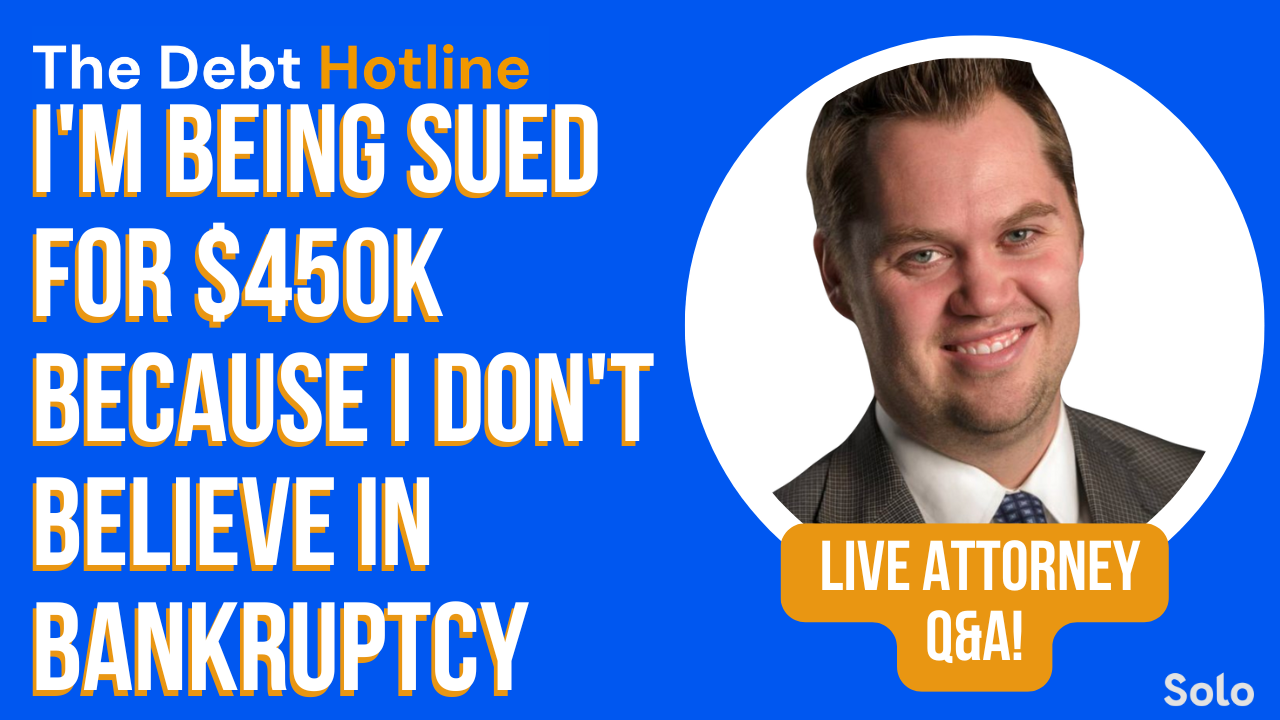
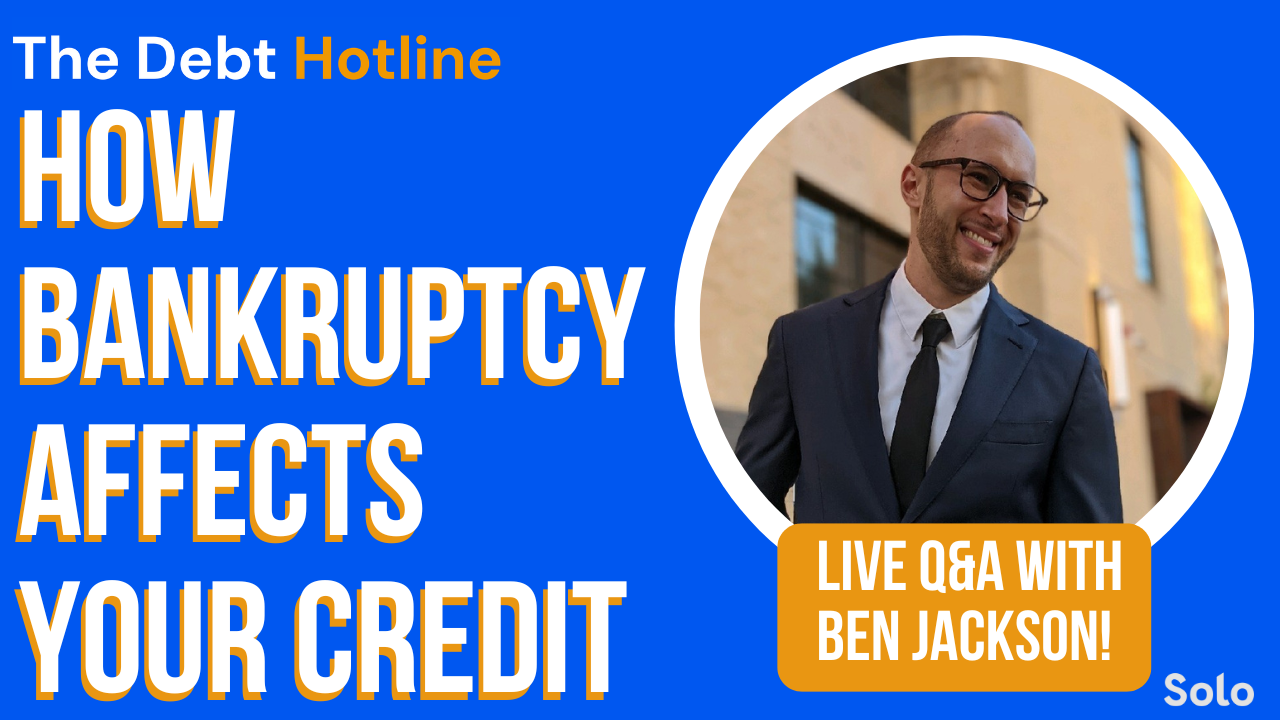
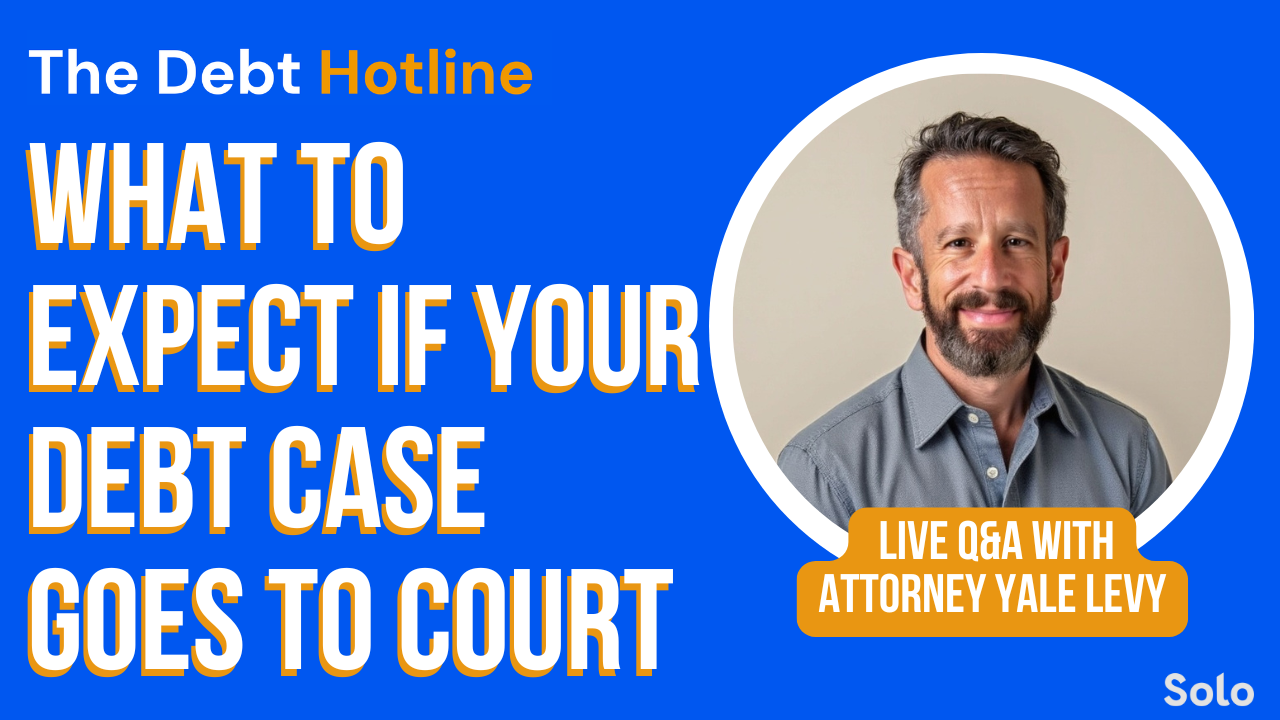

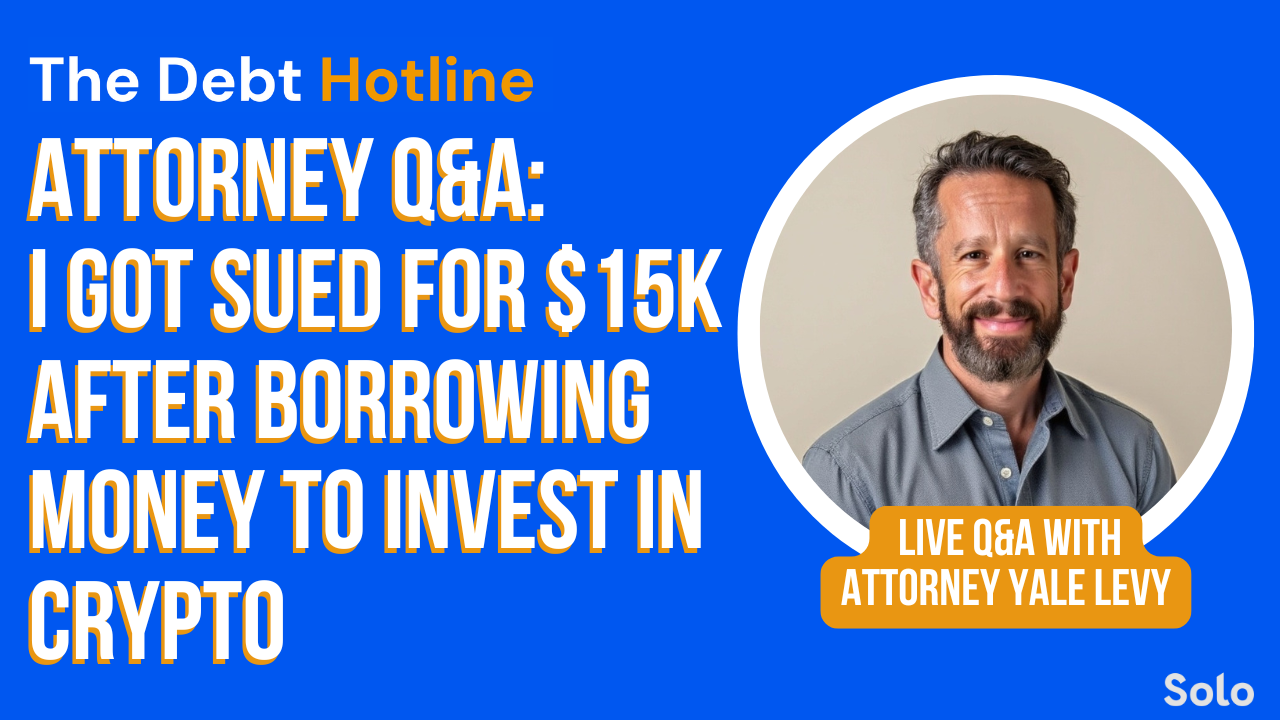


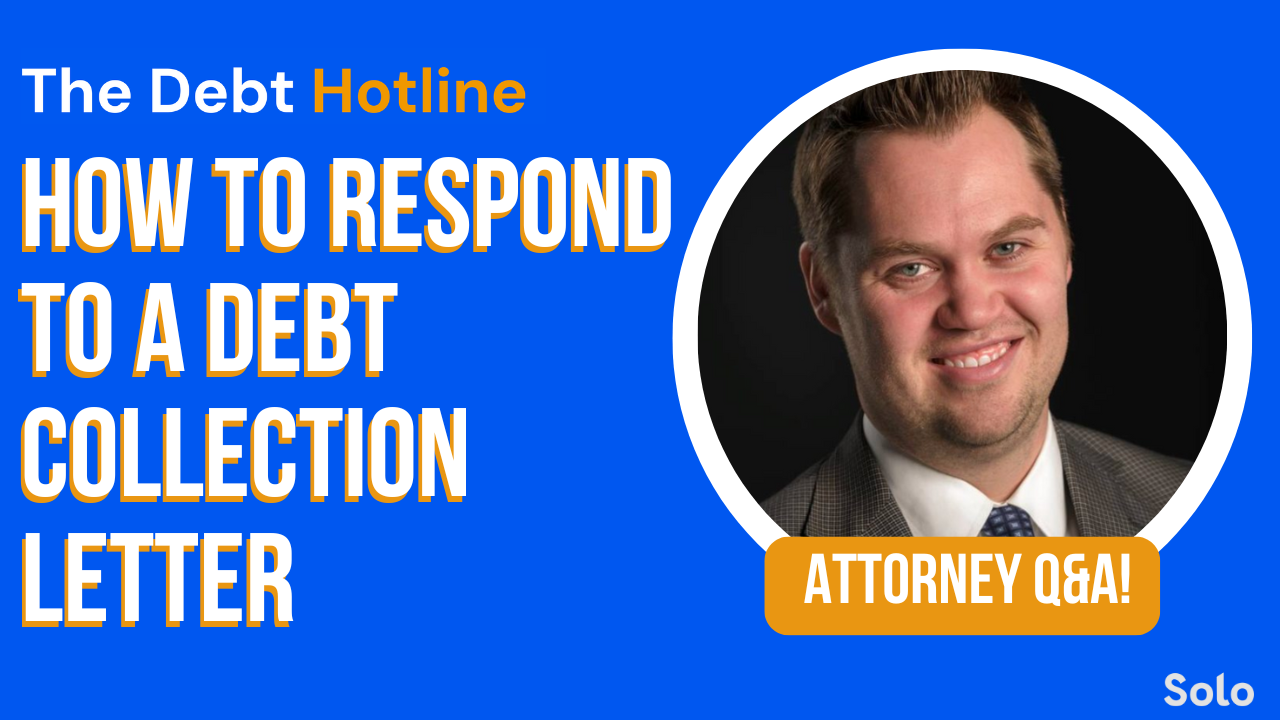
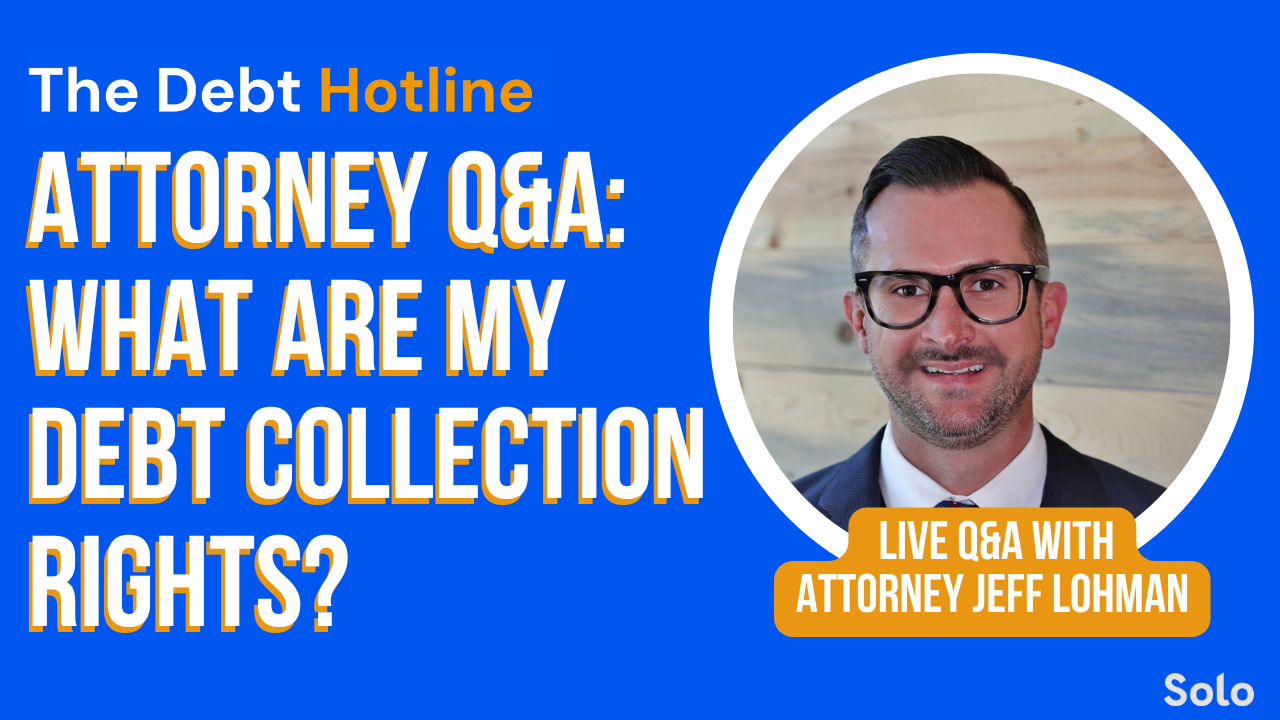



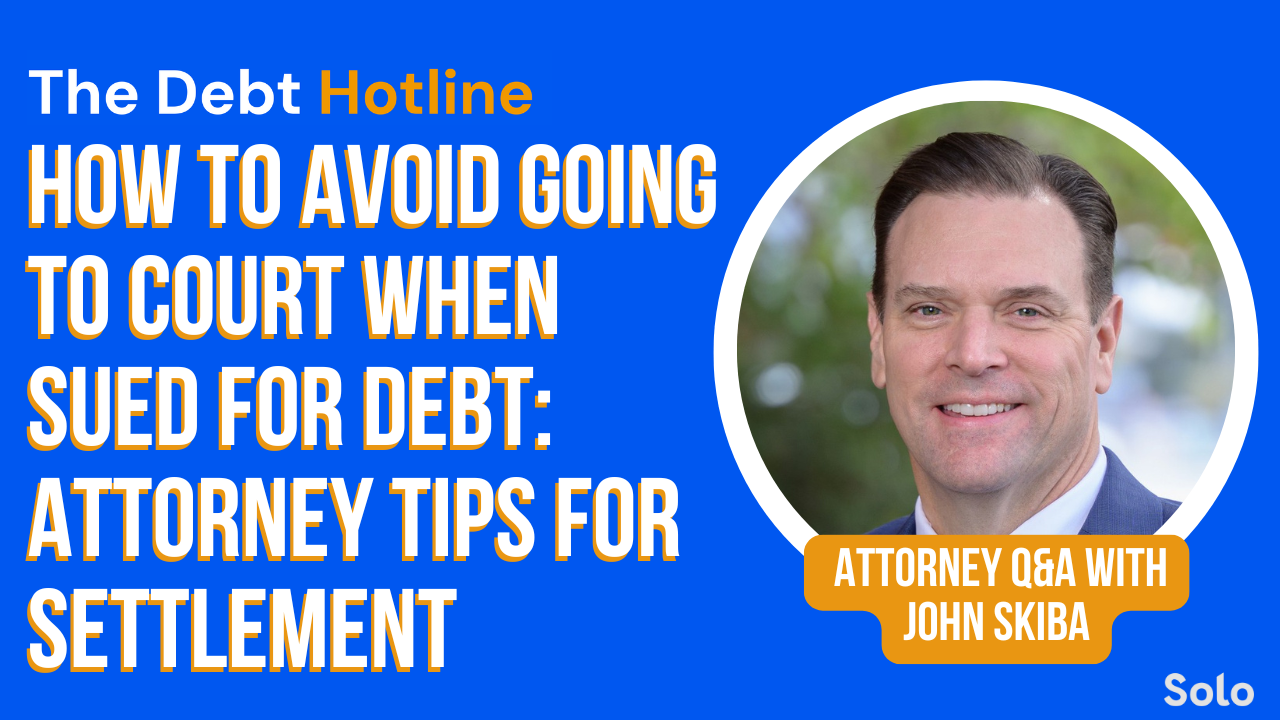



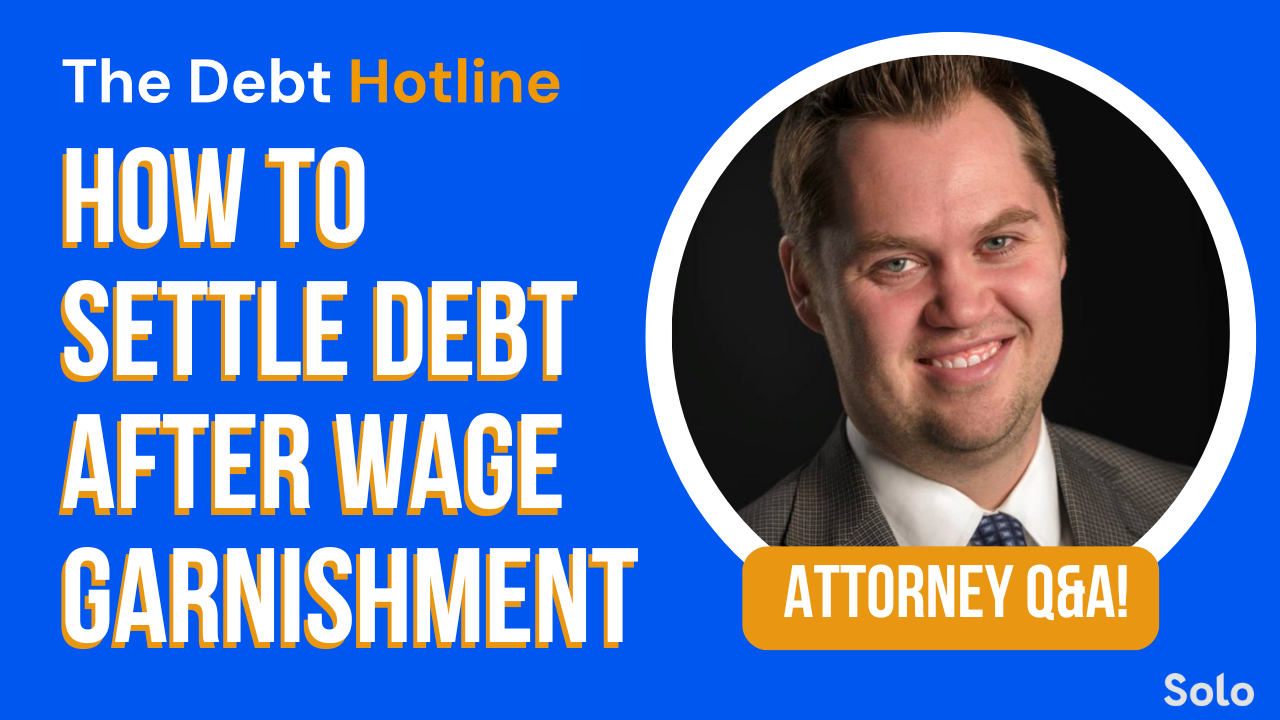
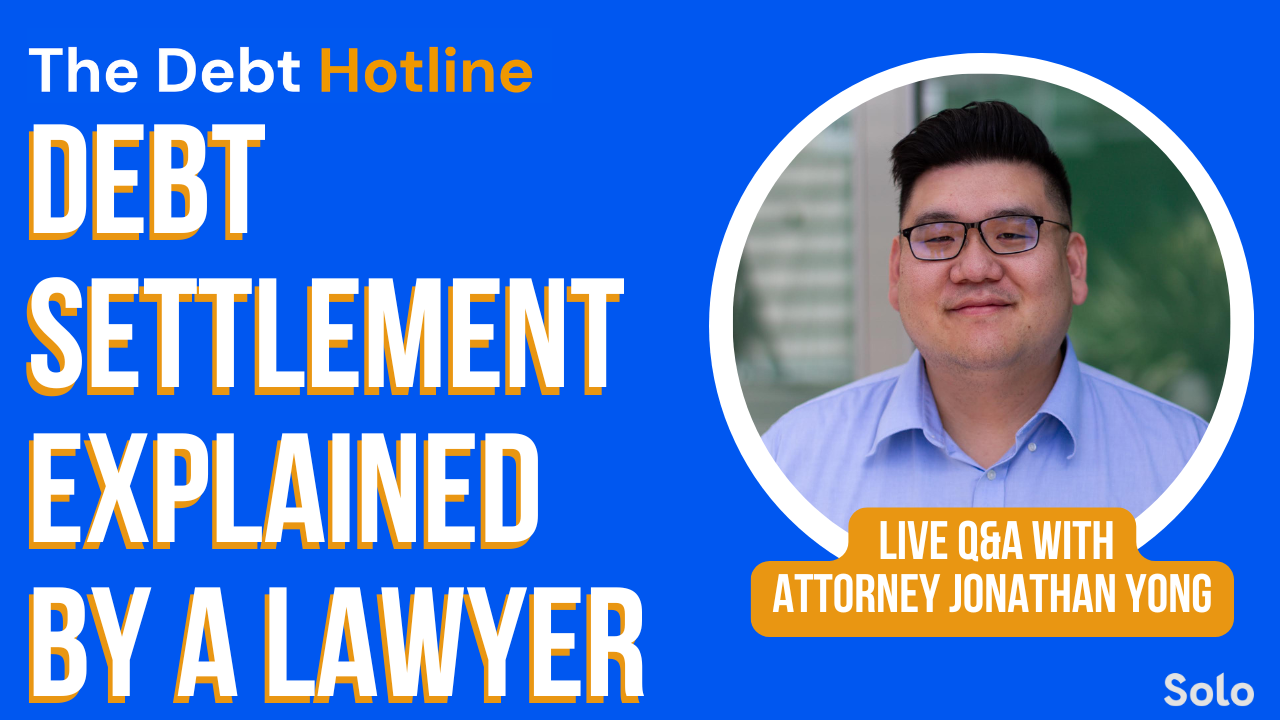
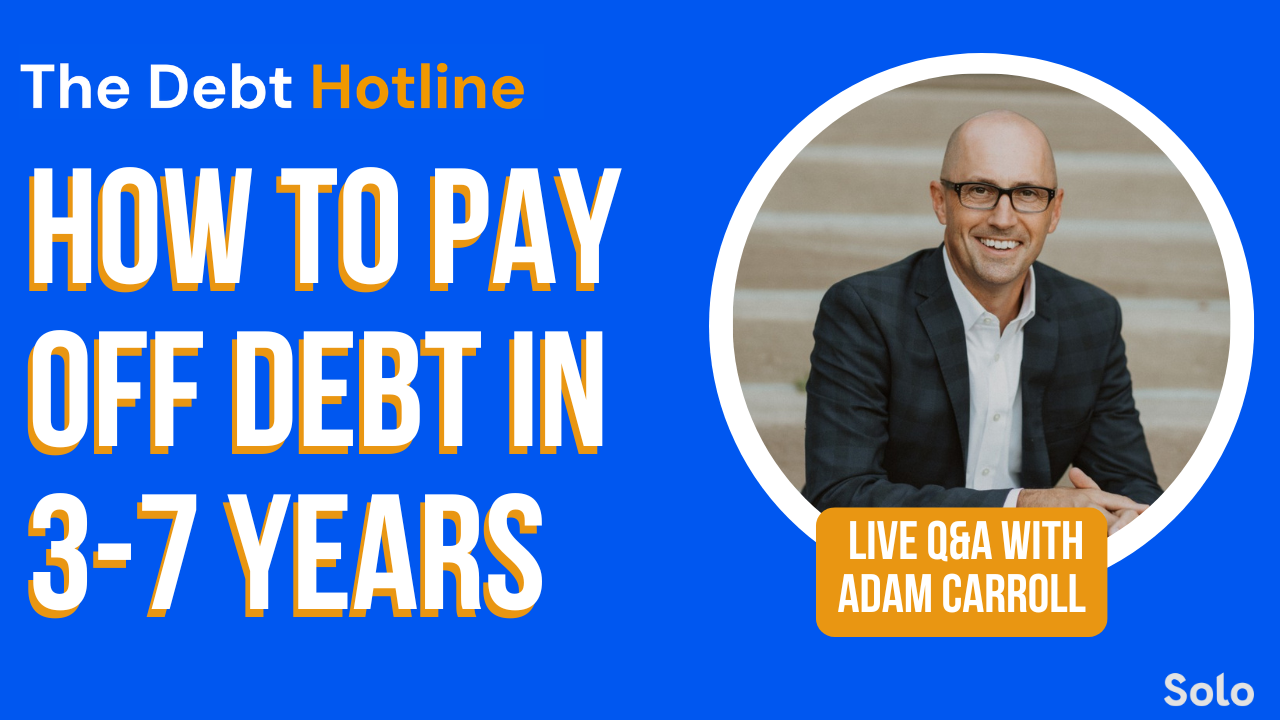
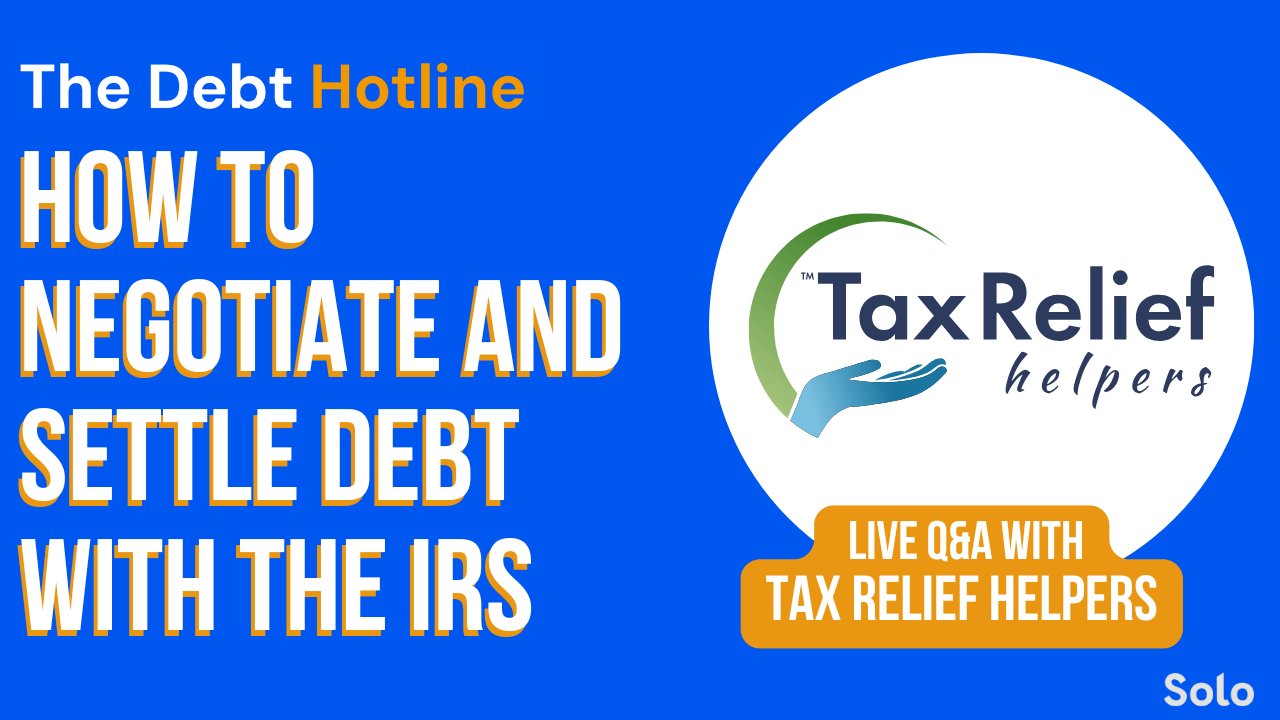



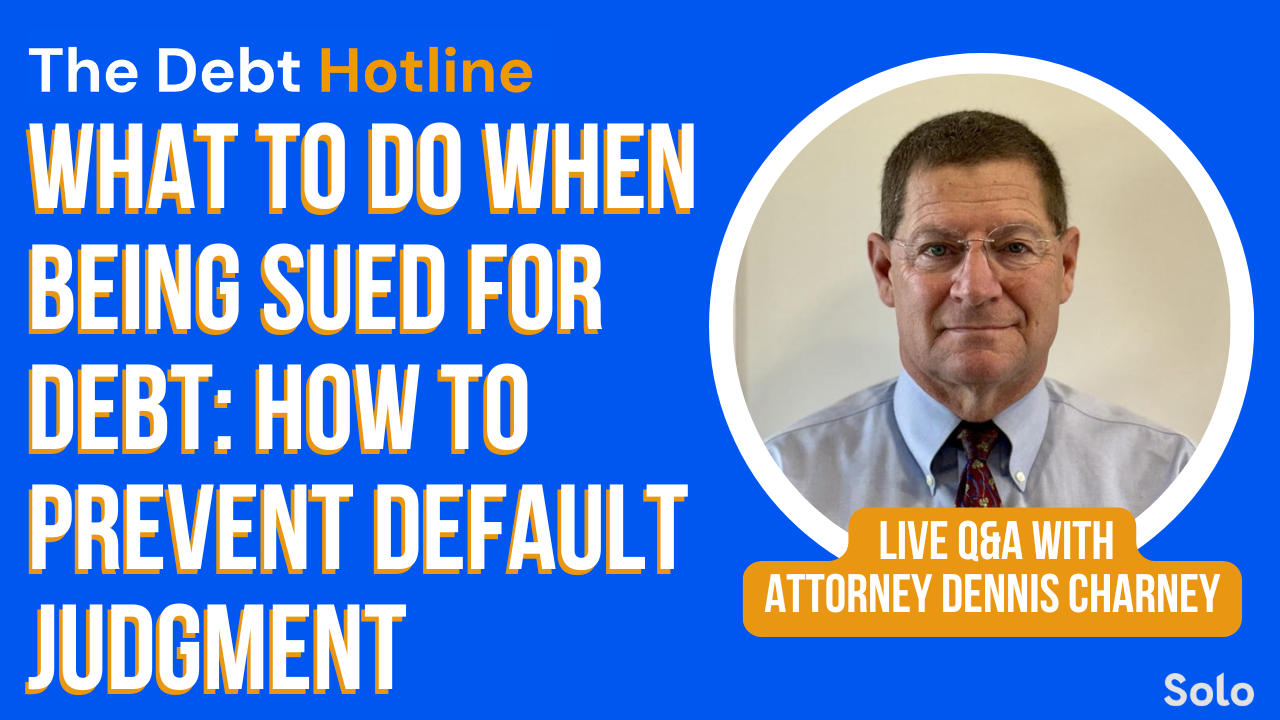
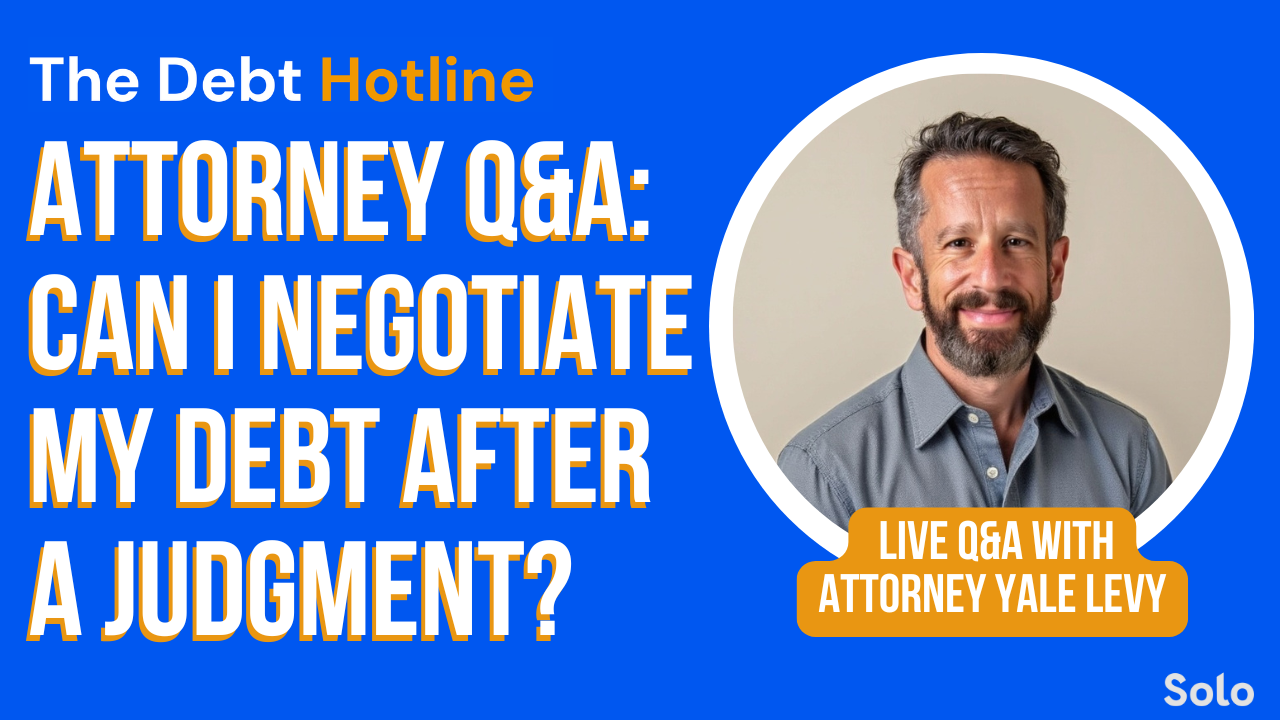
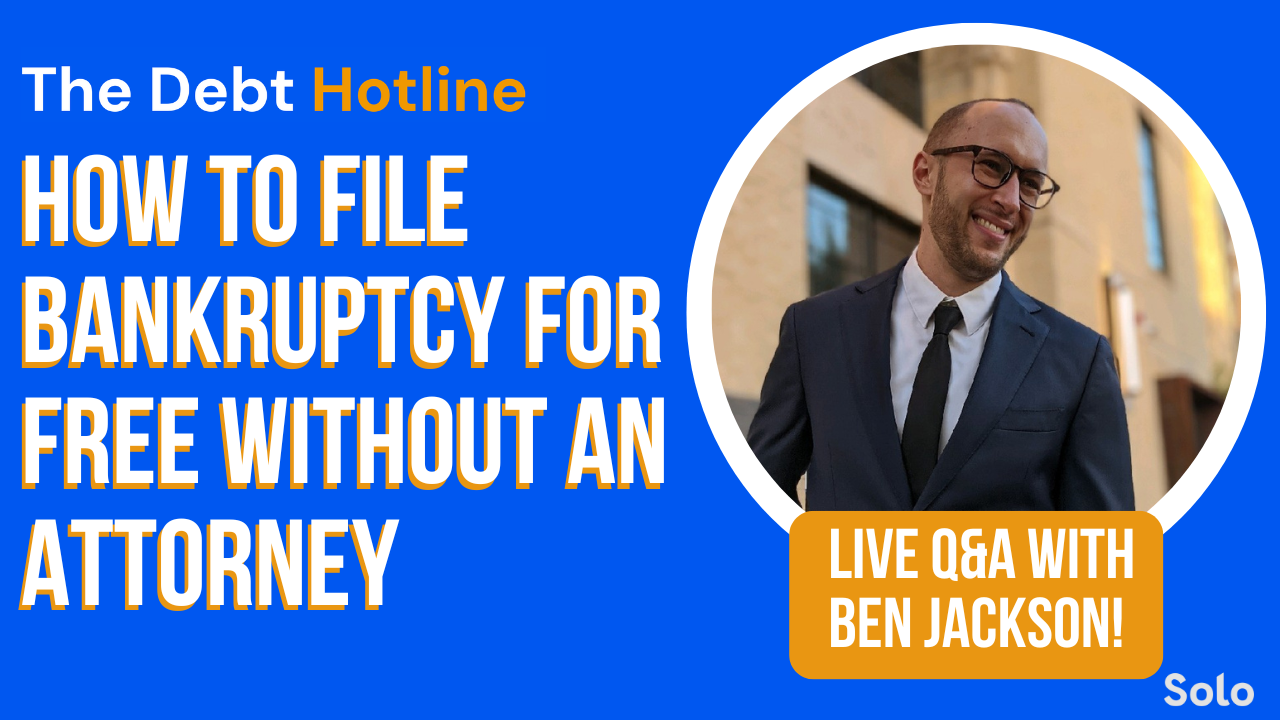

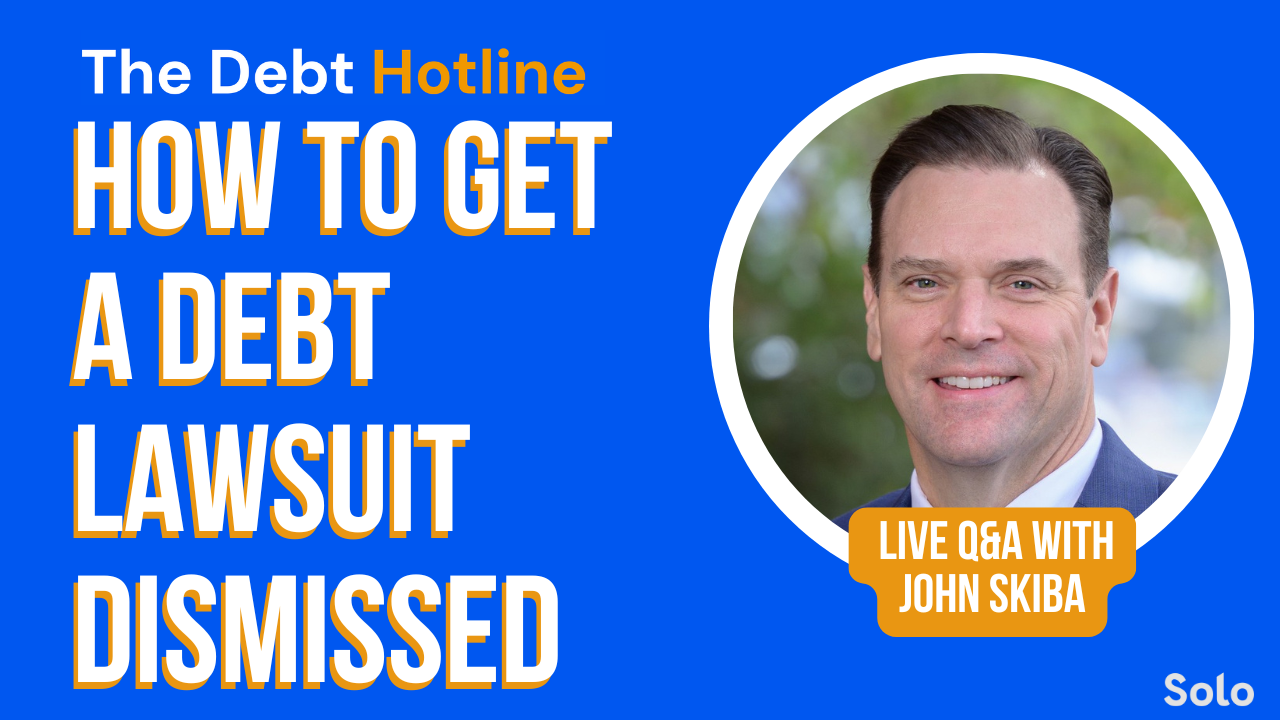
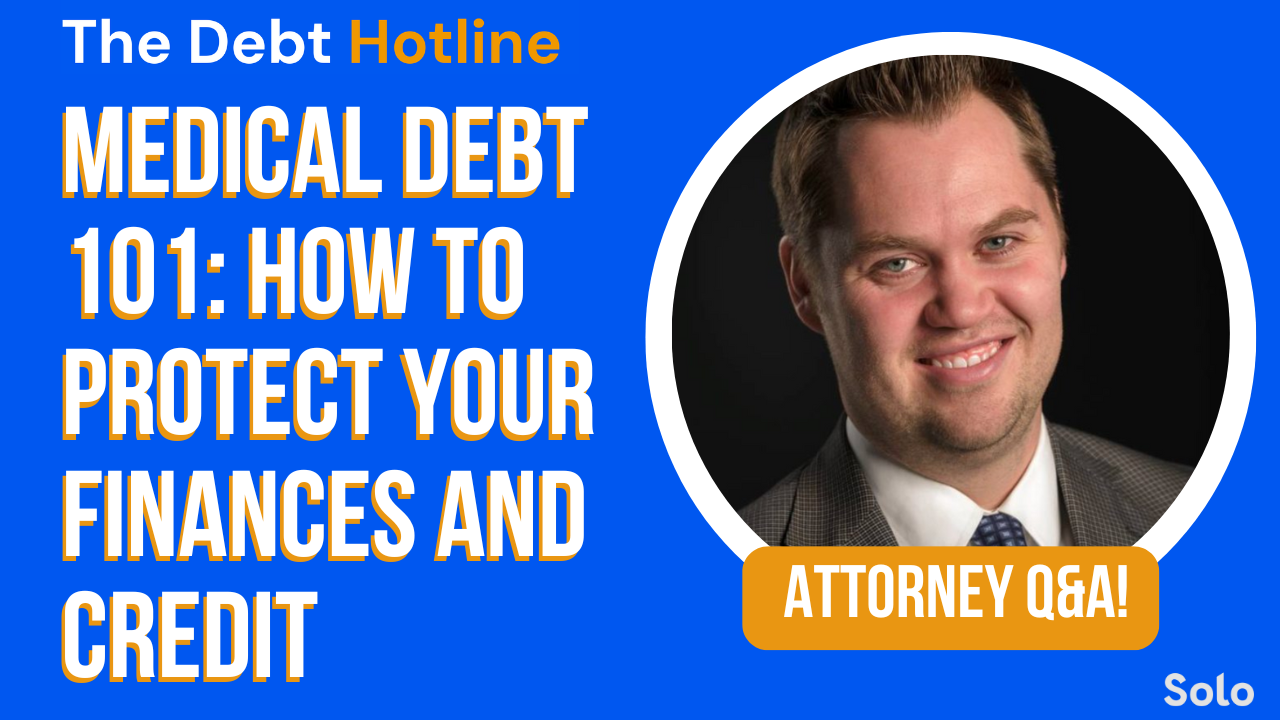

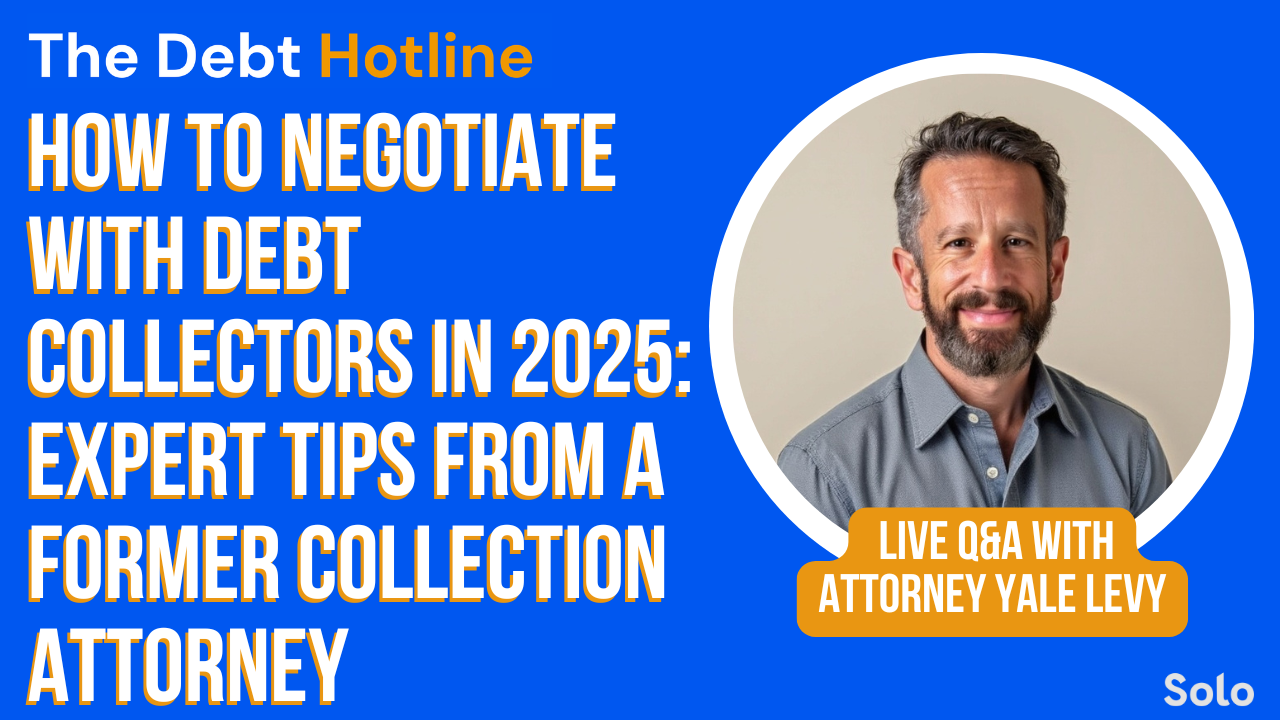
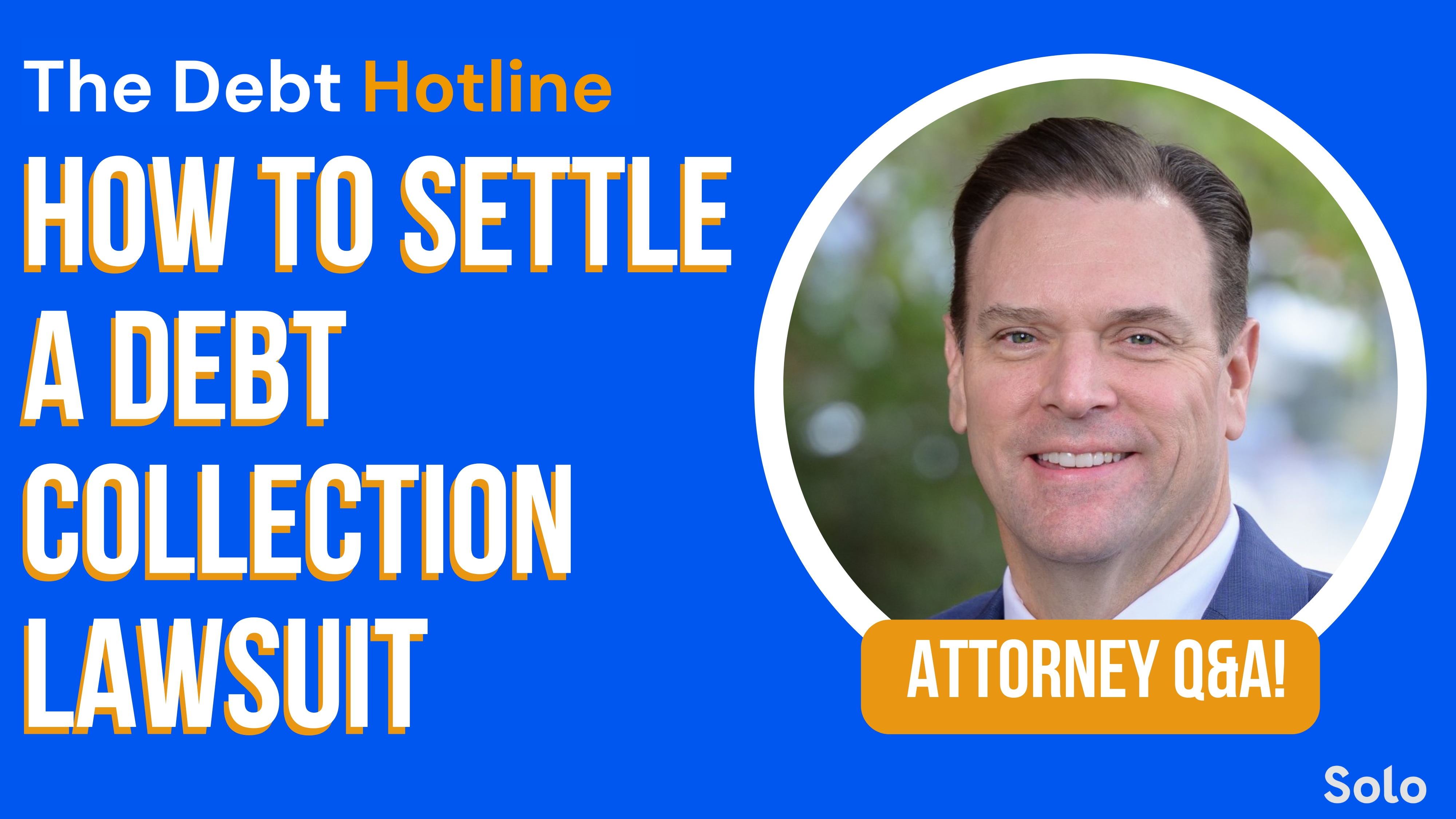










































































































































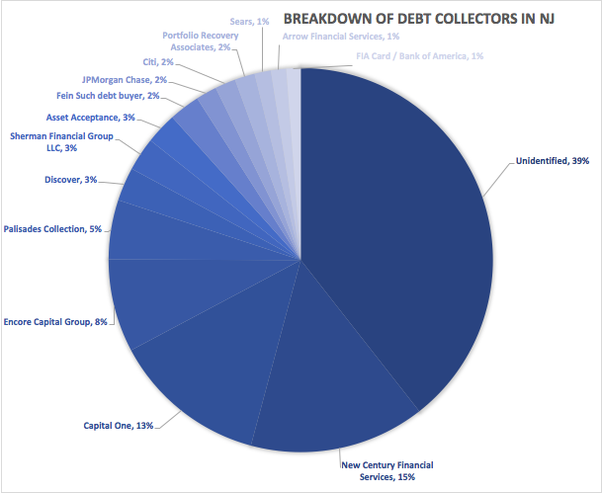

.png)